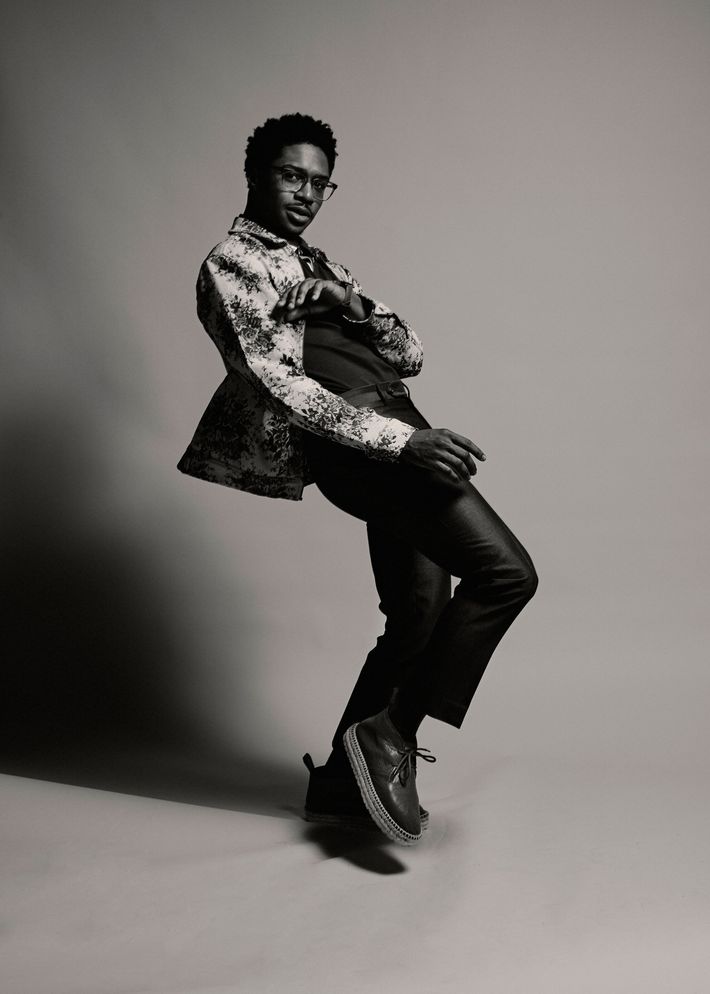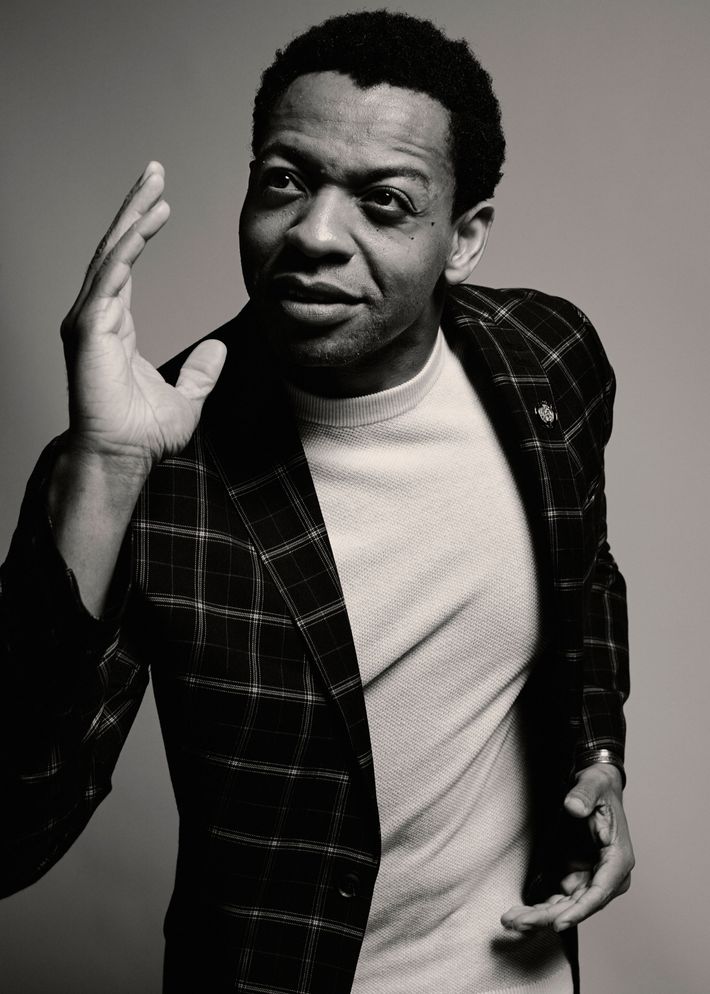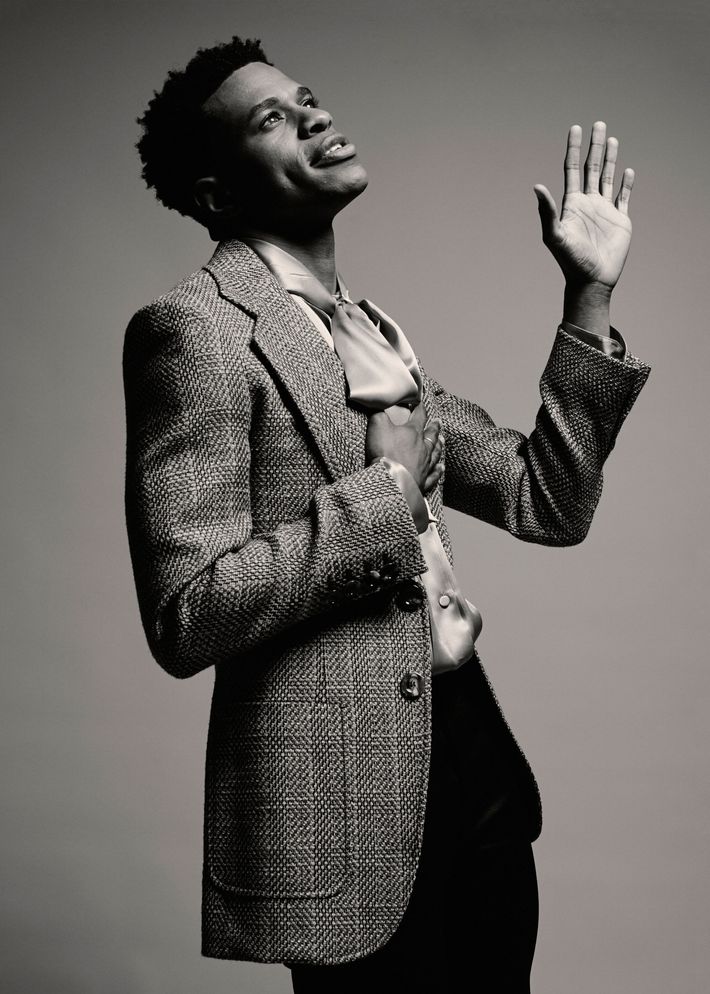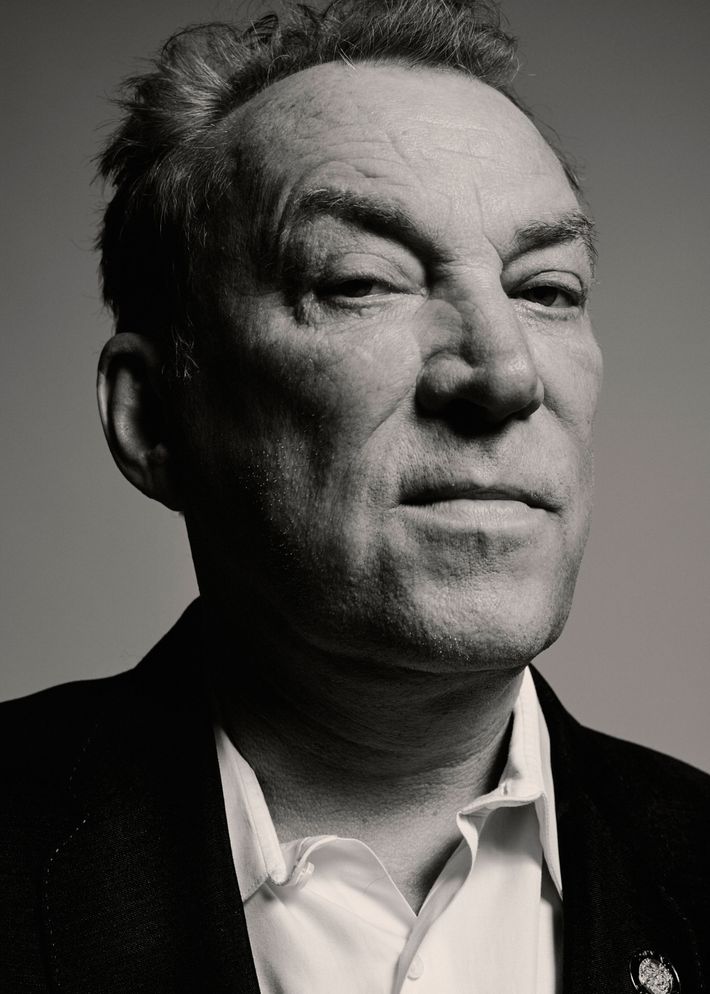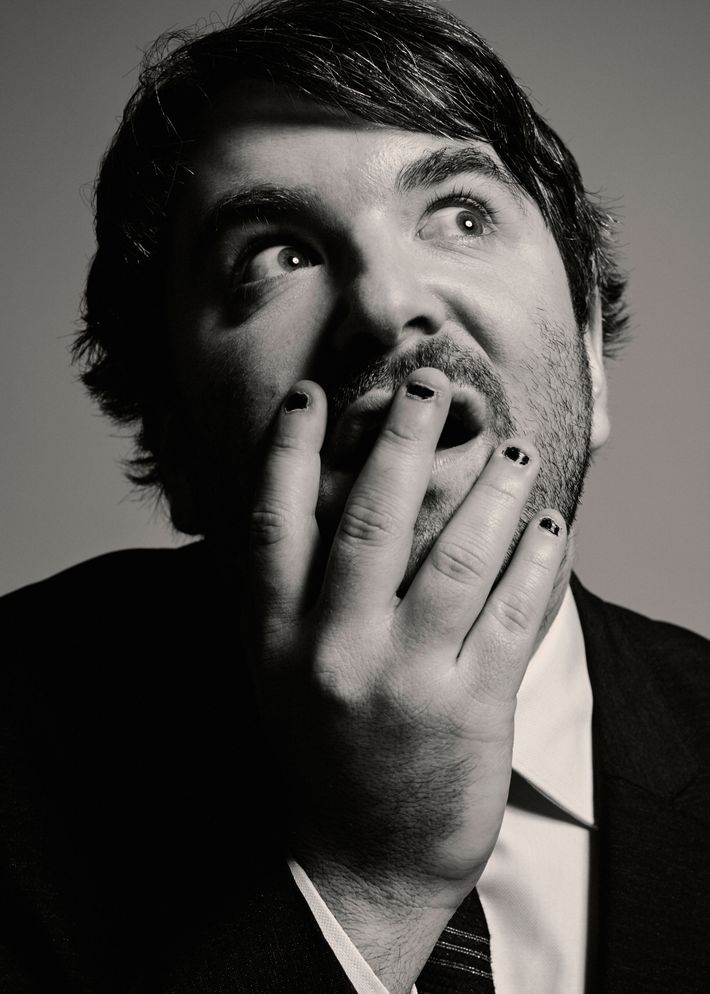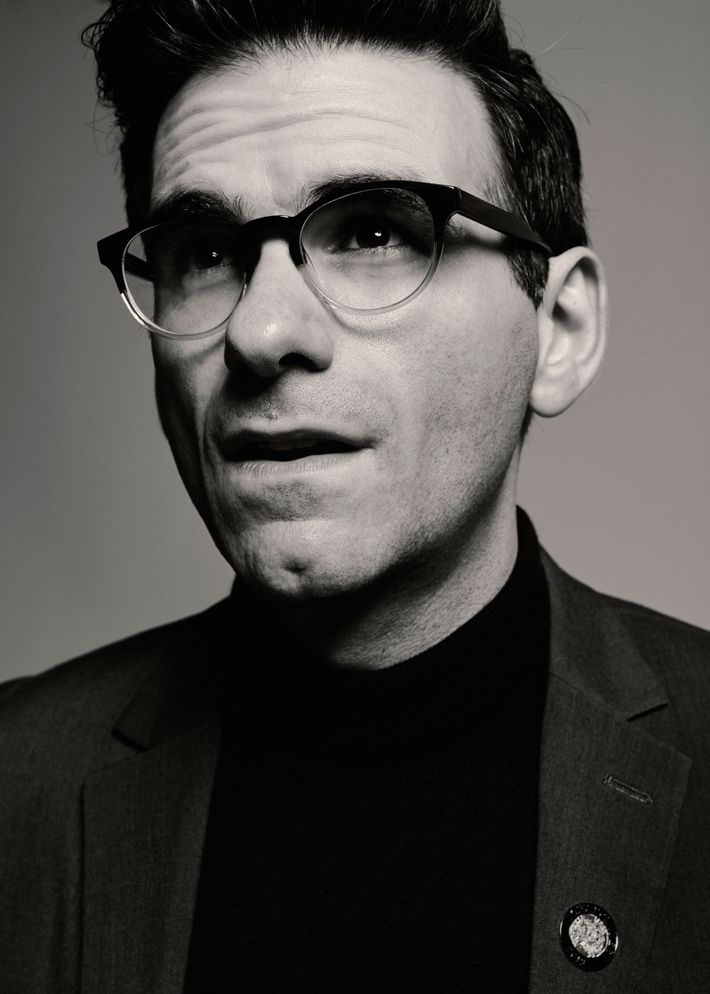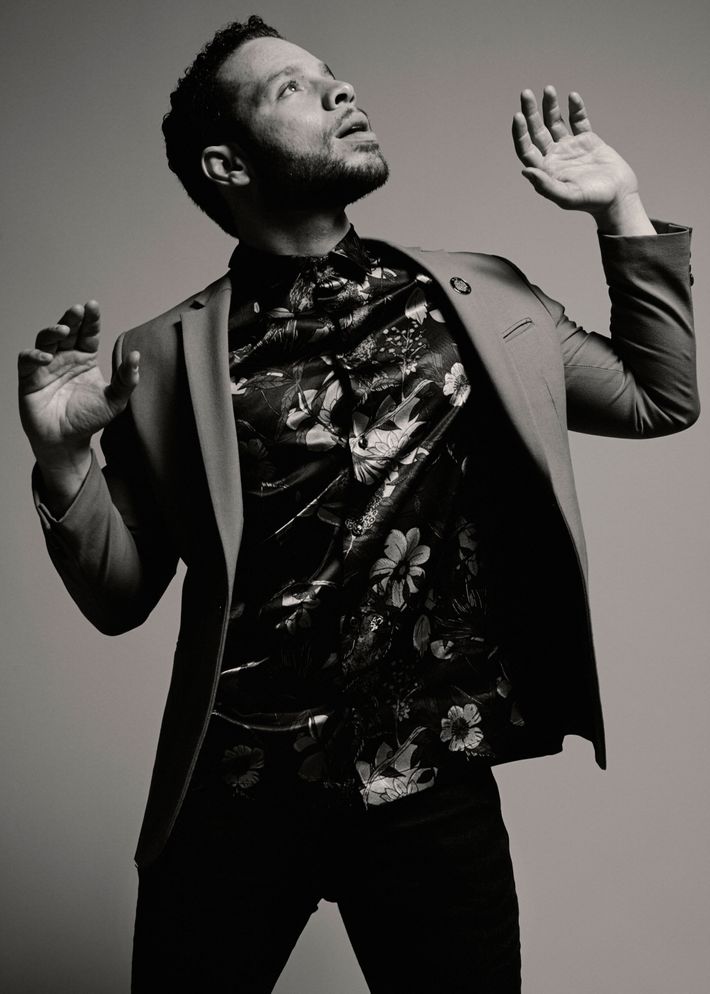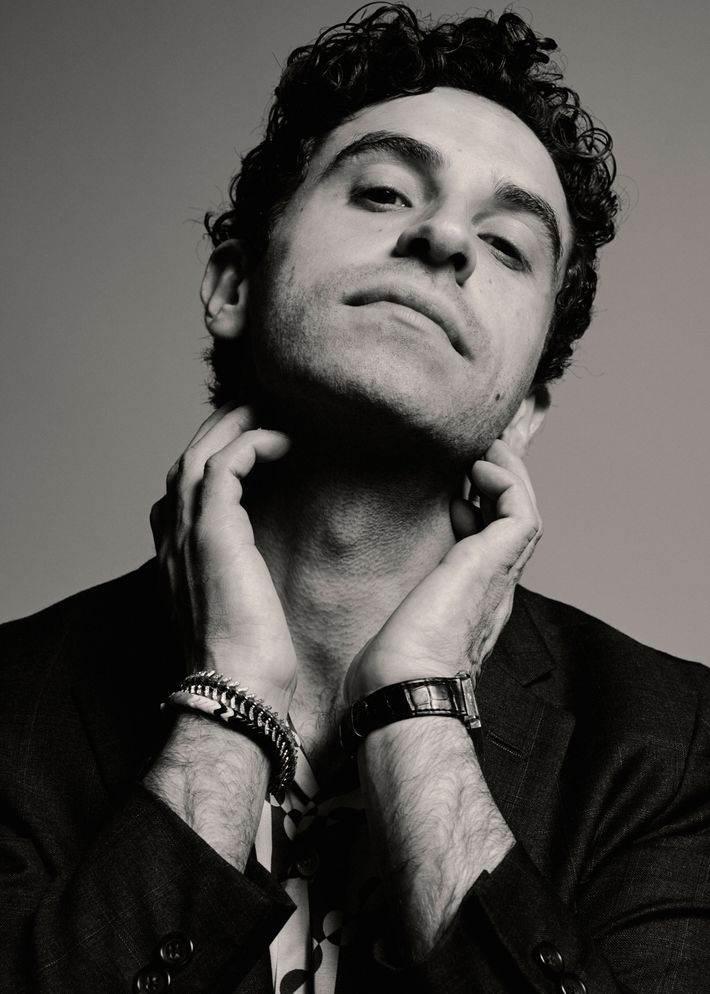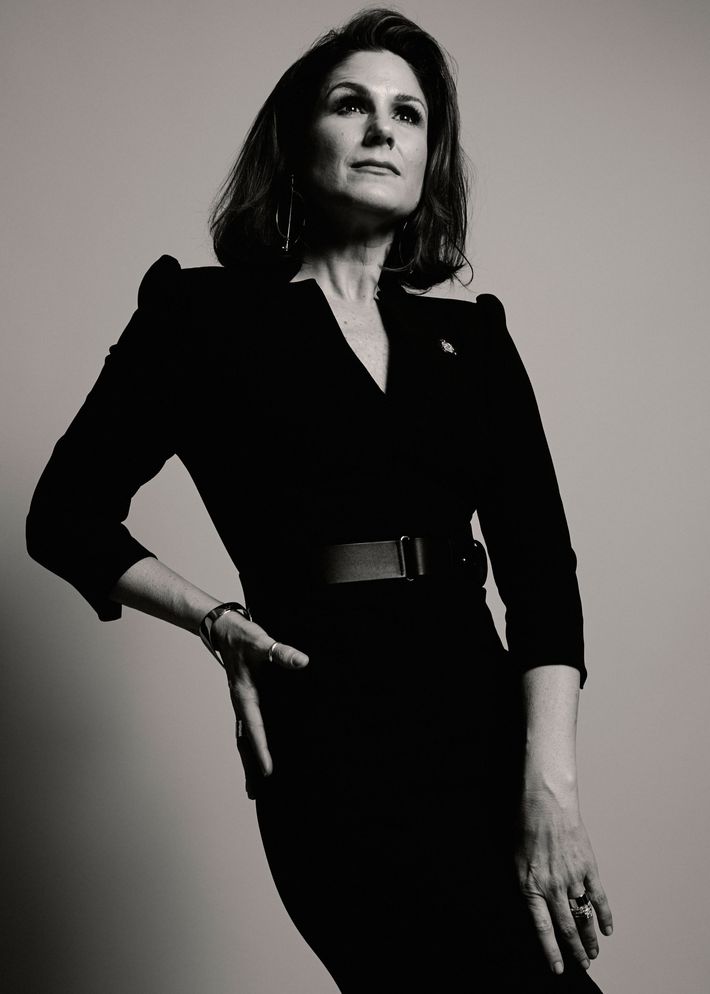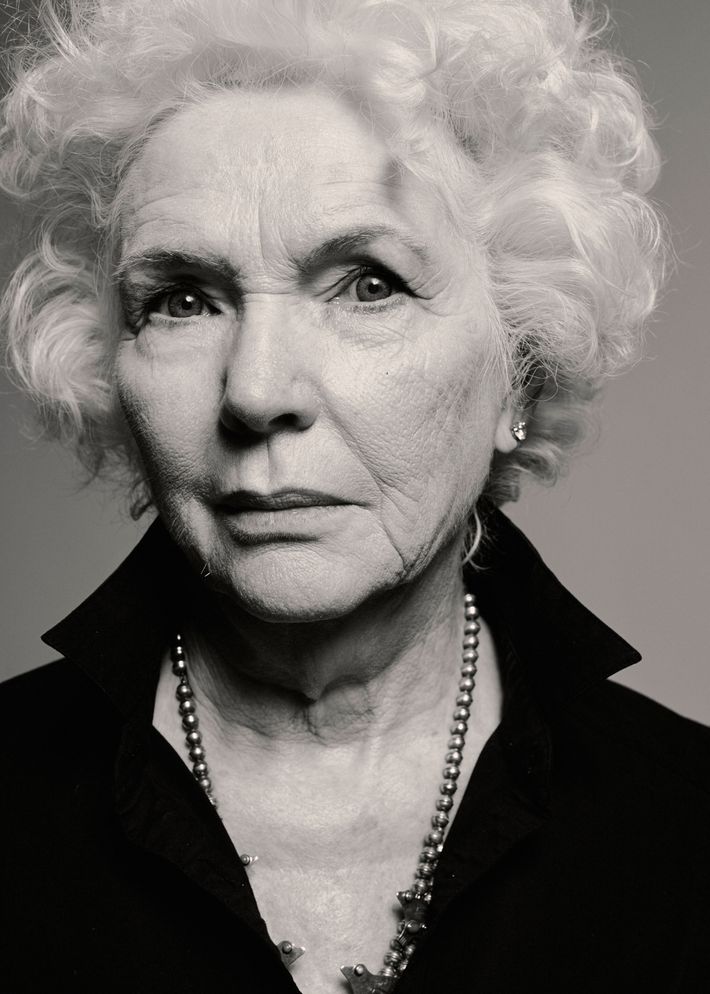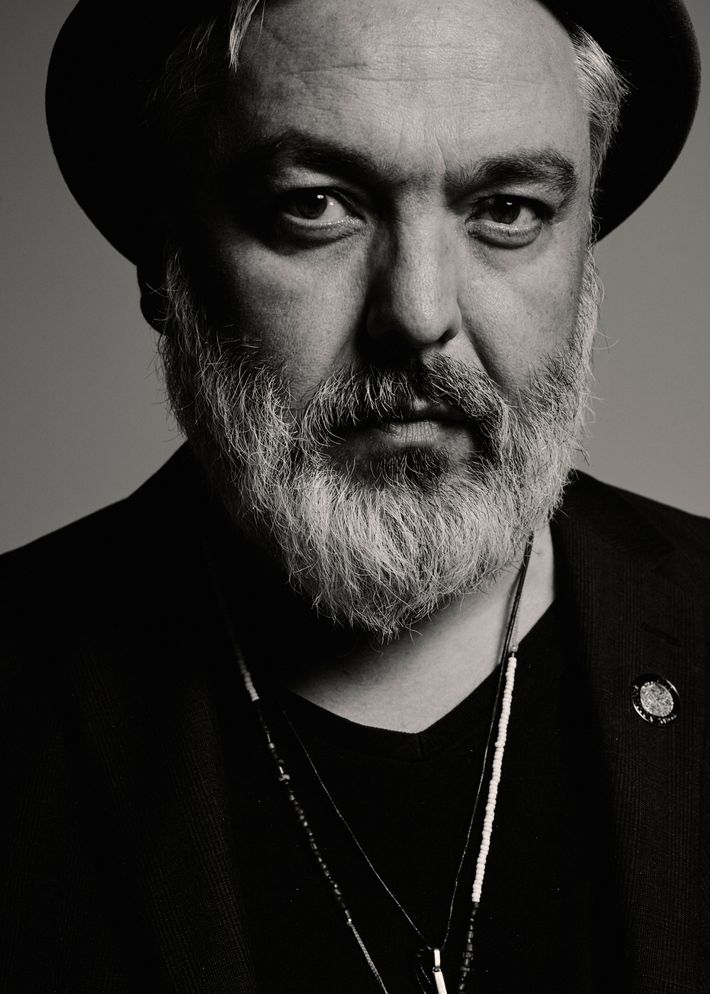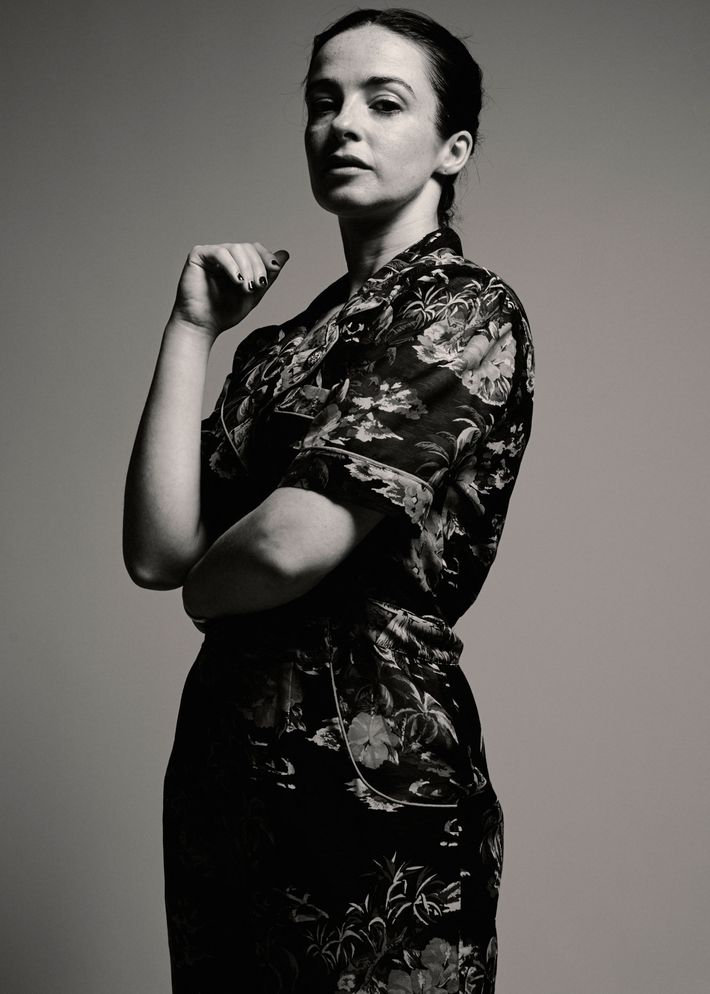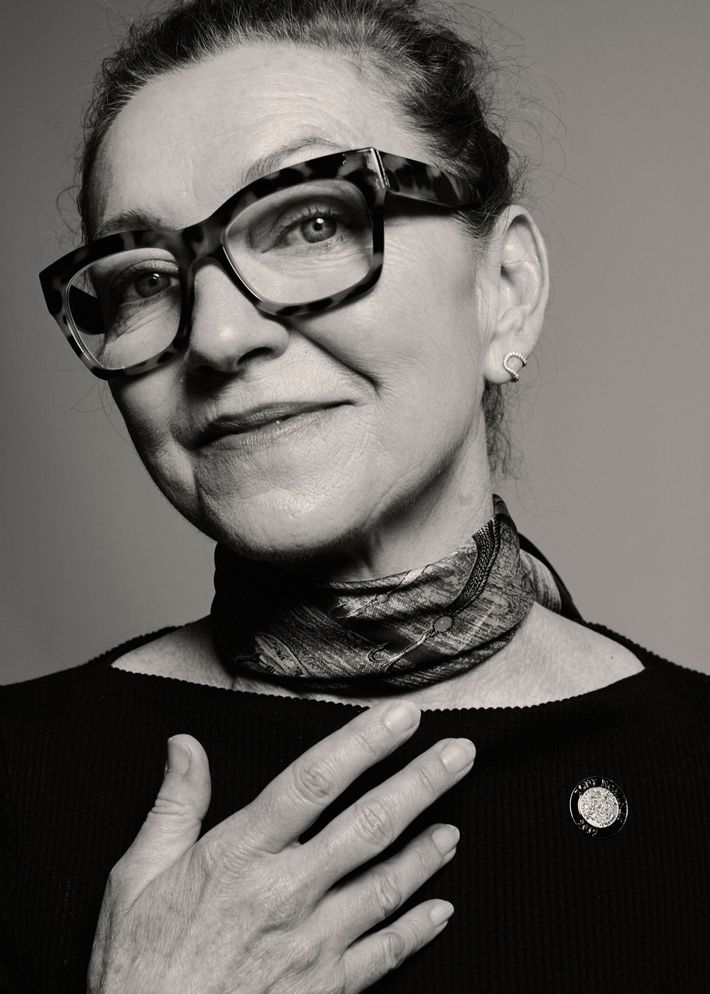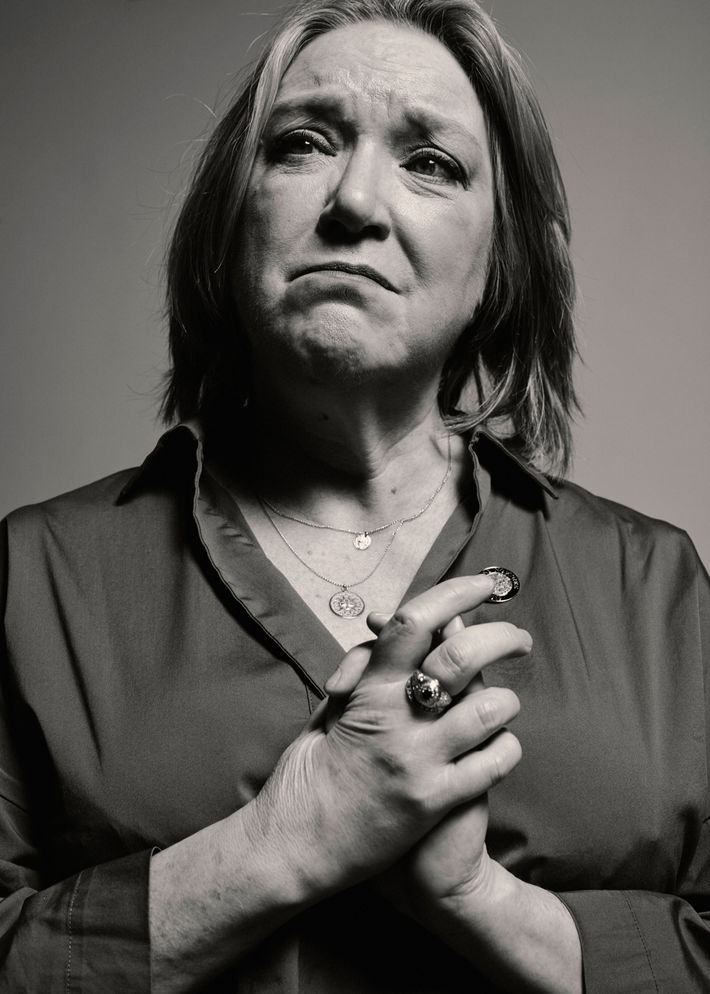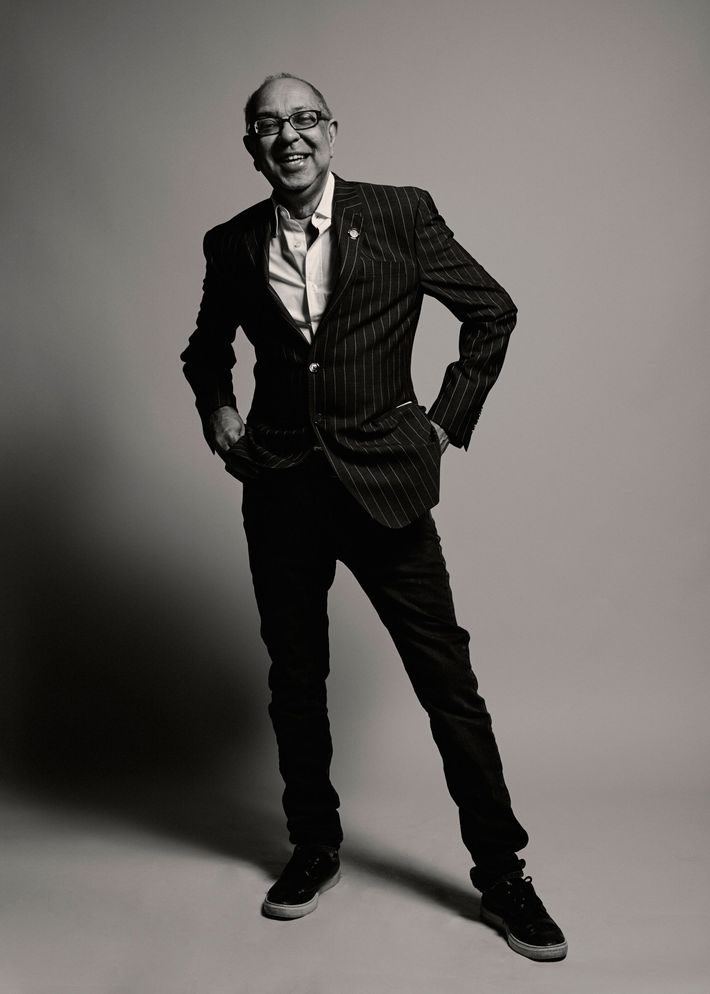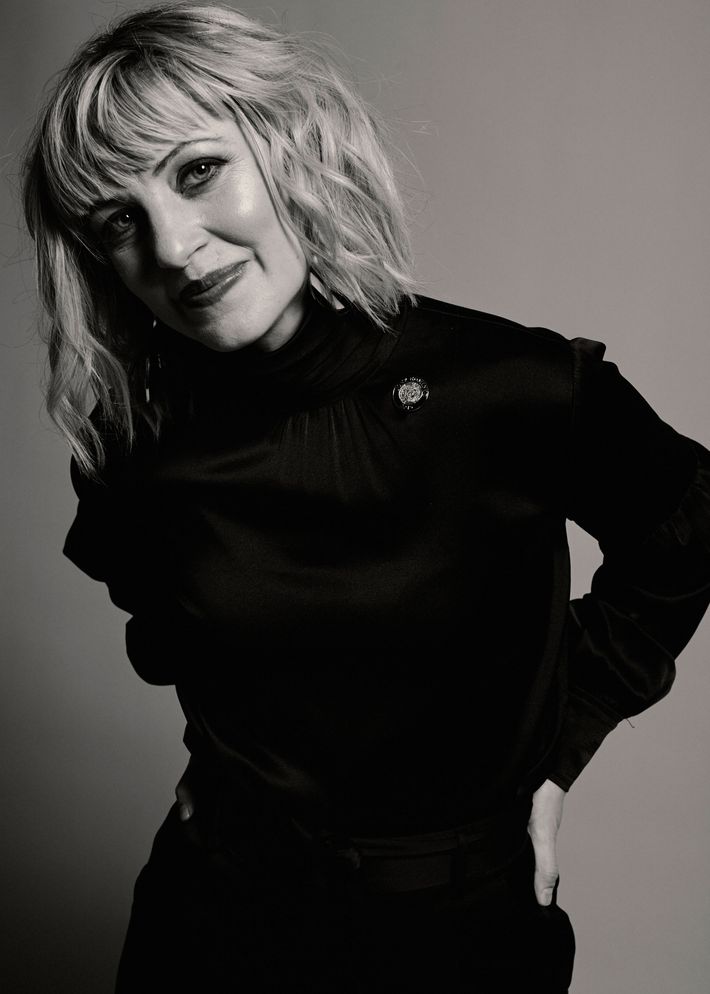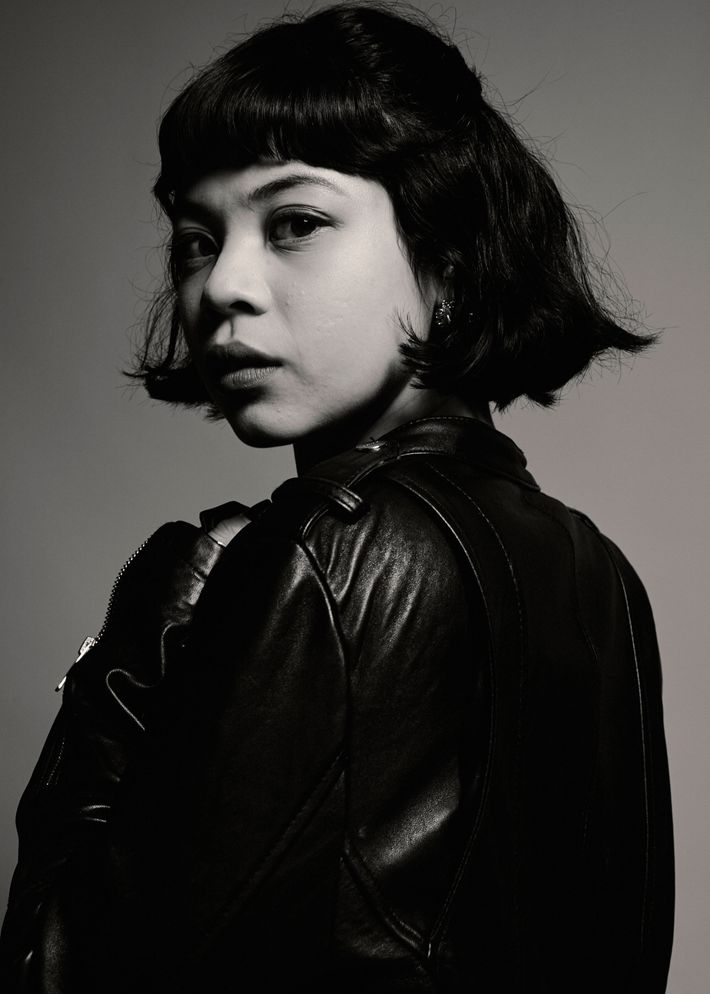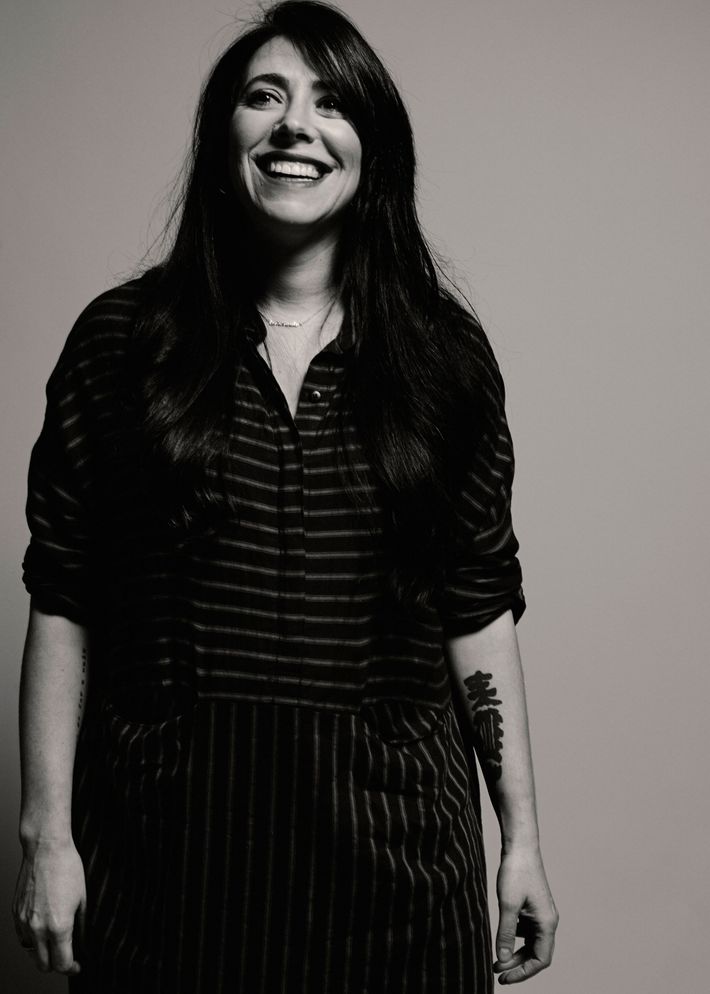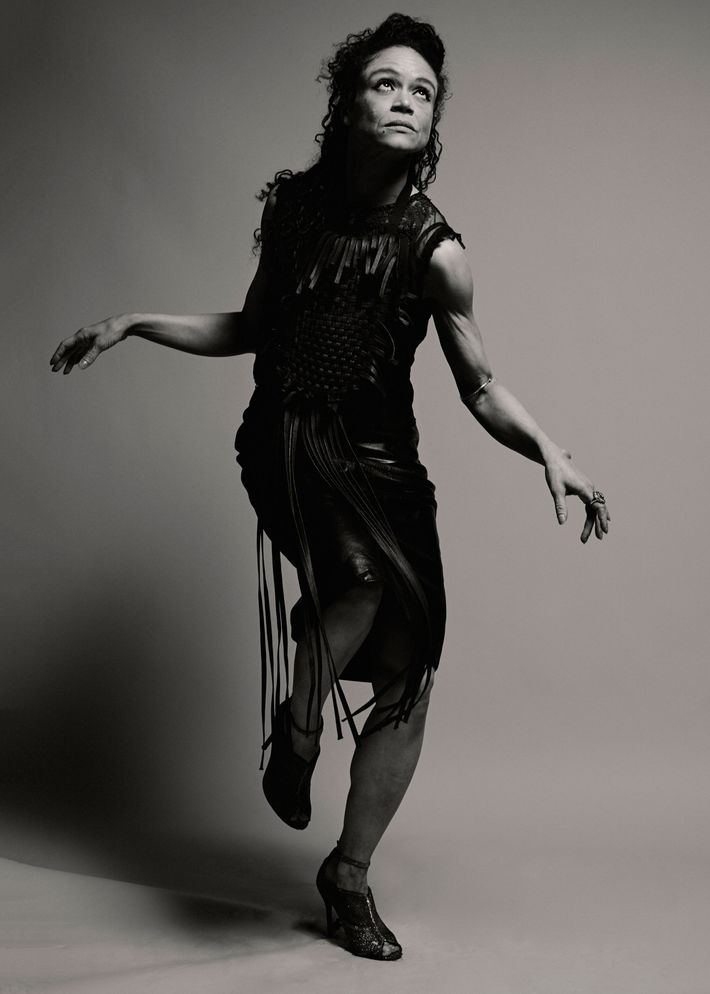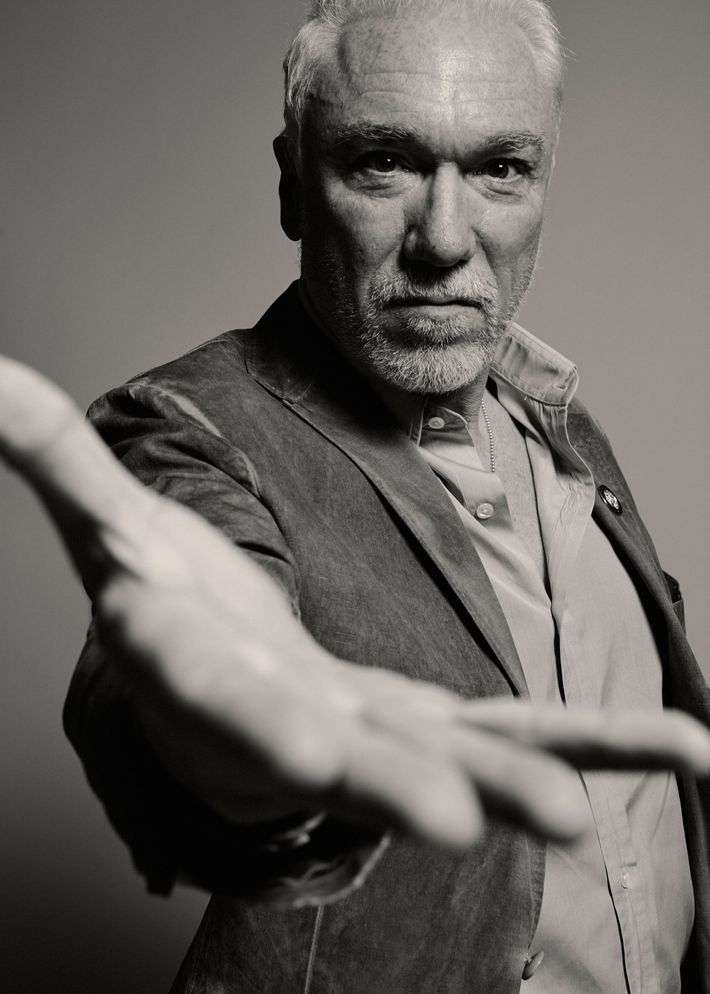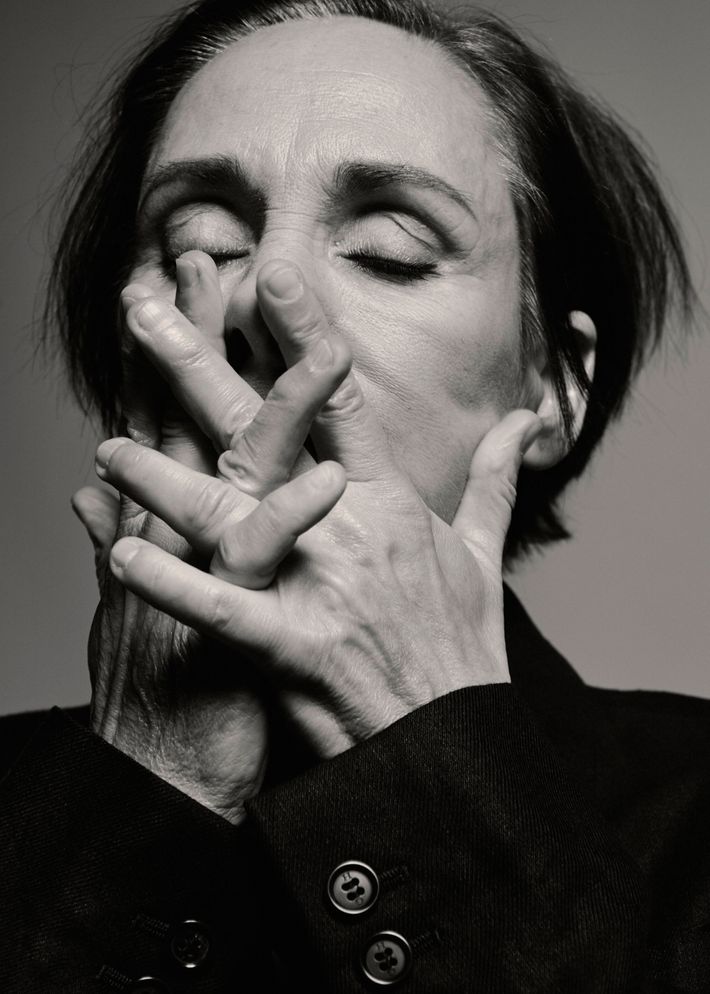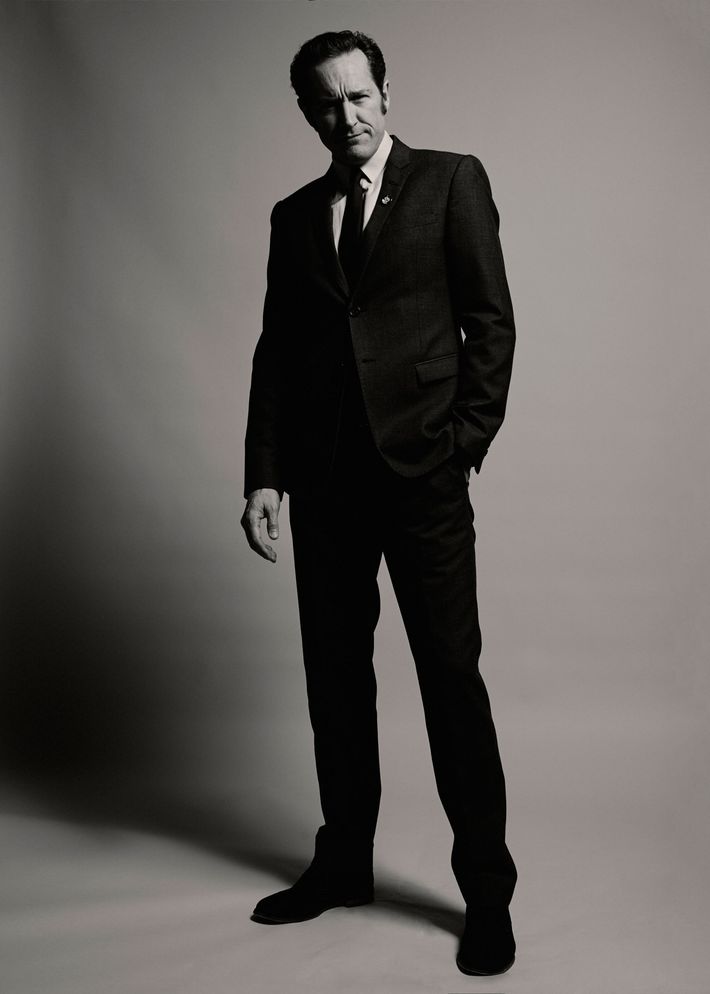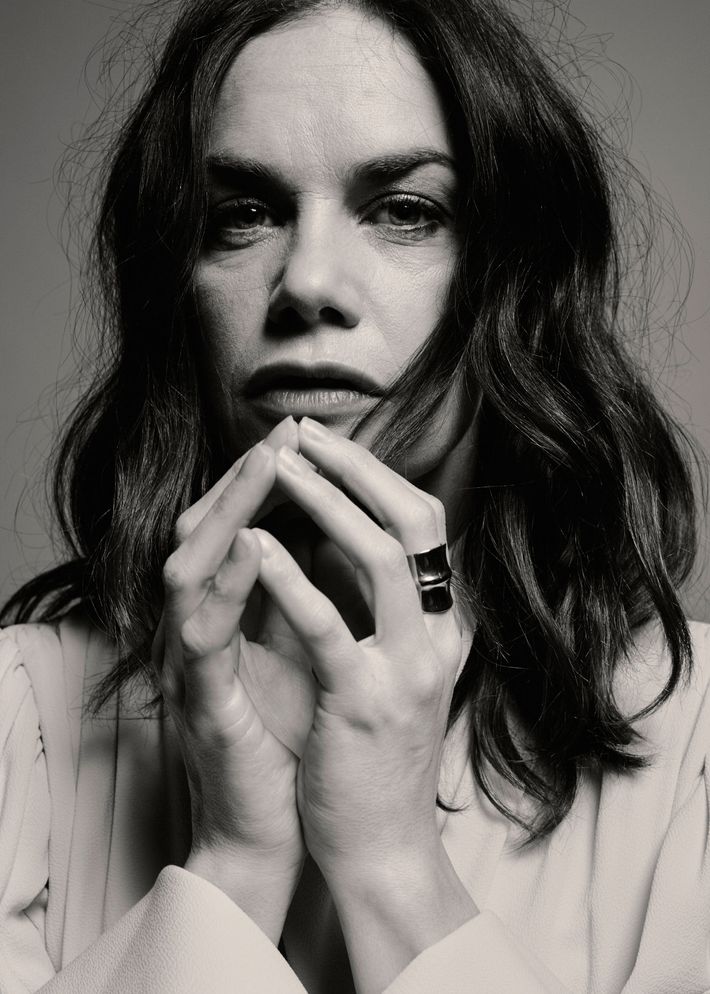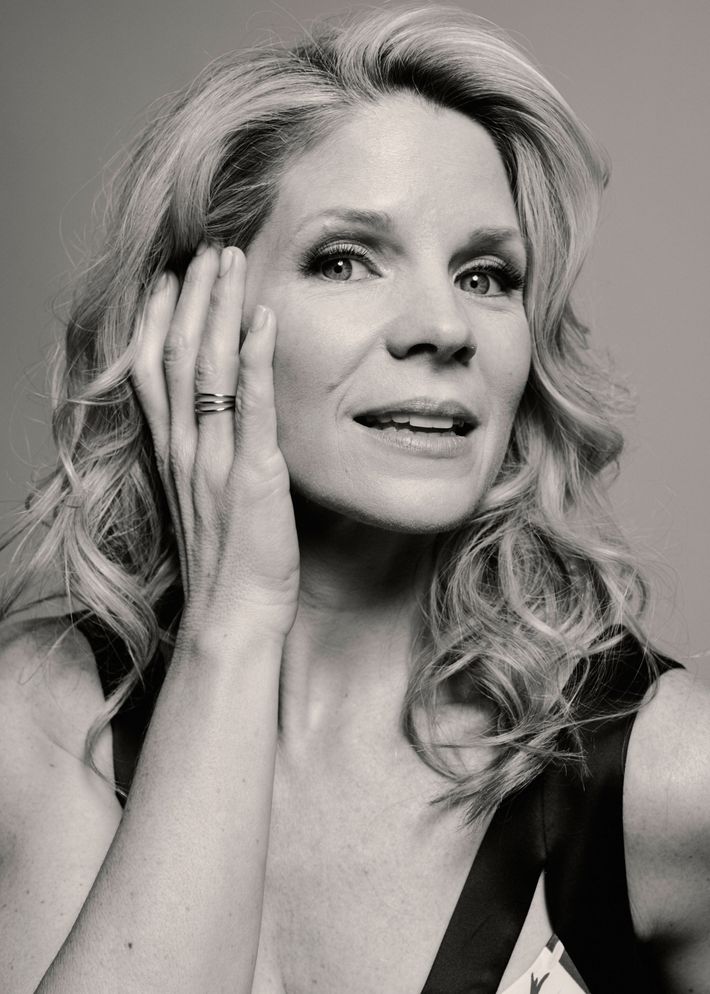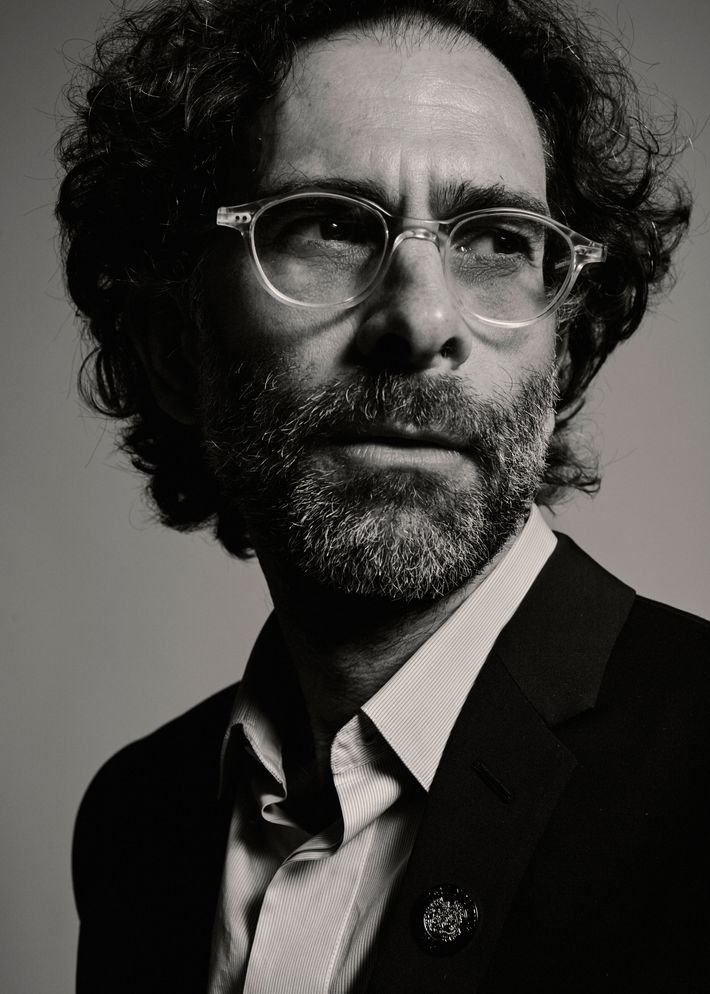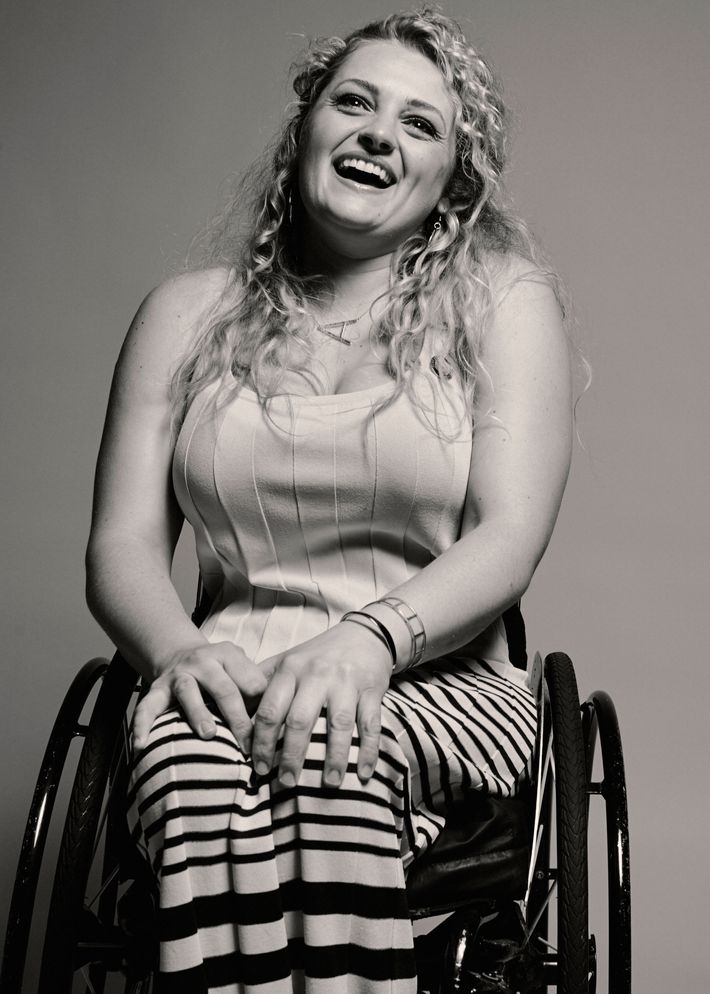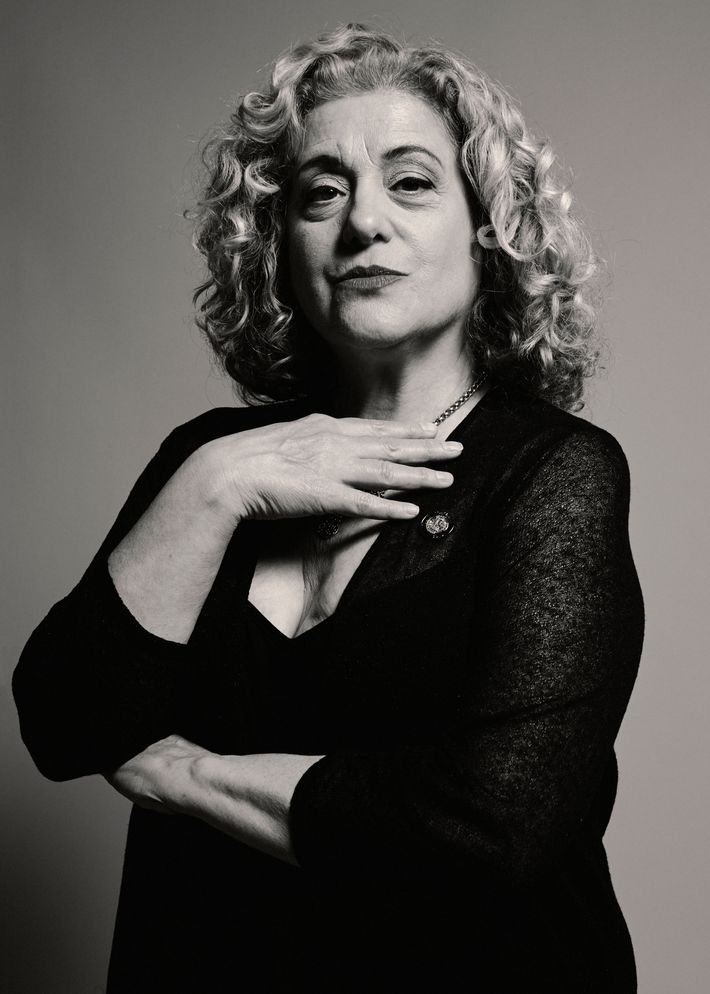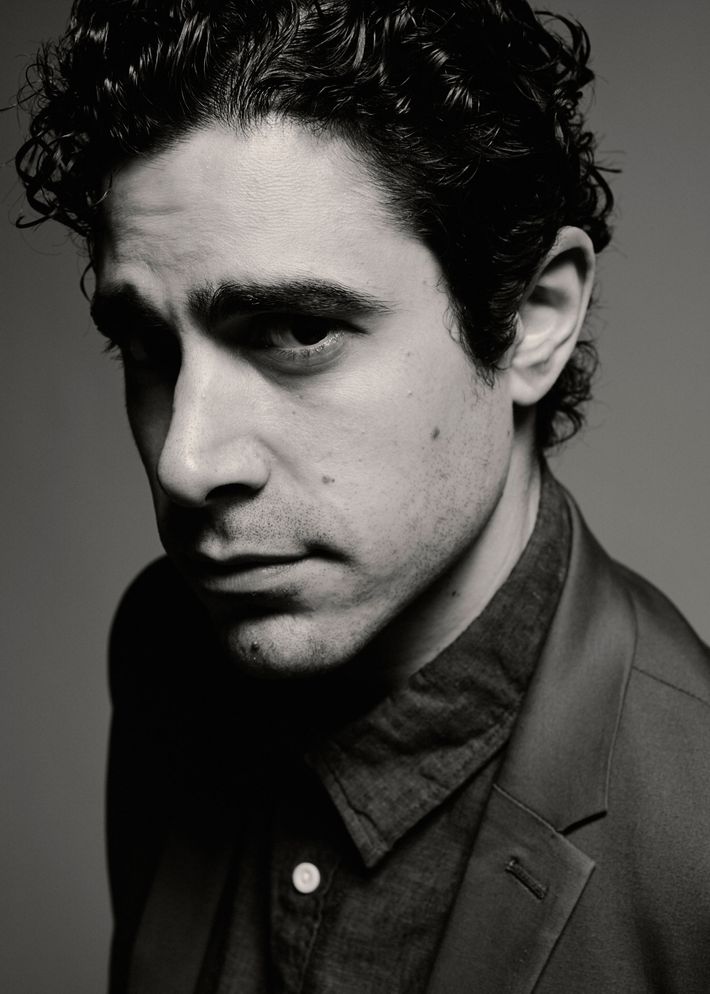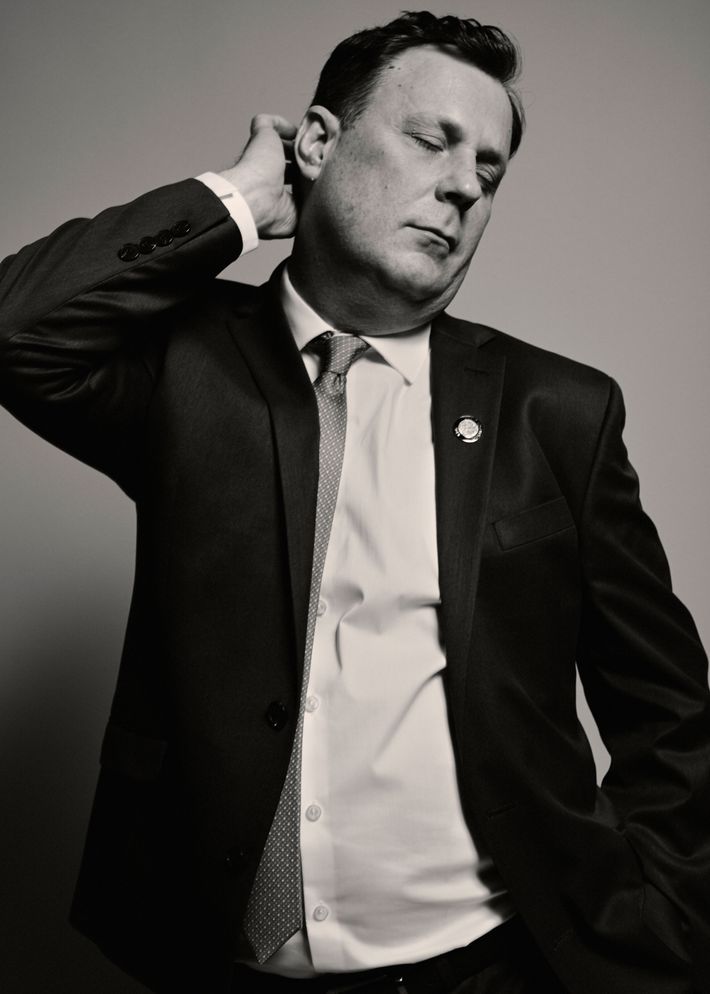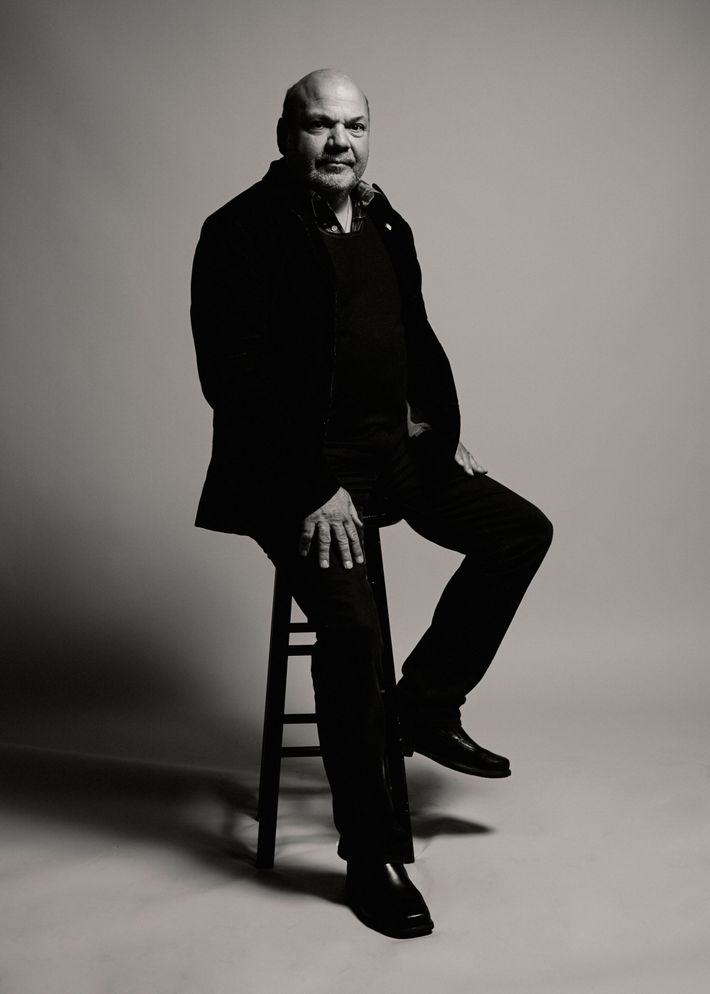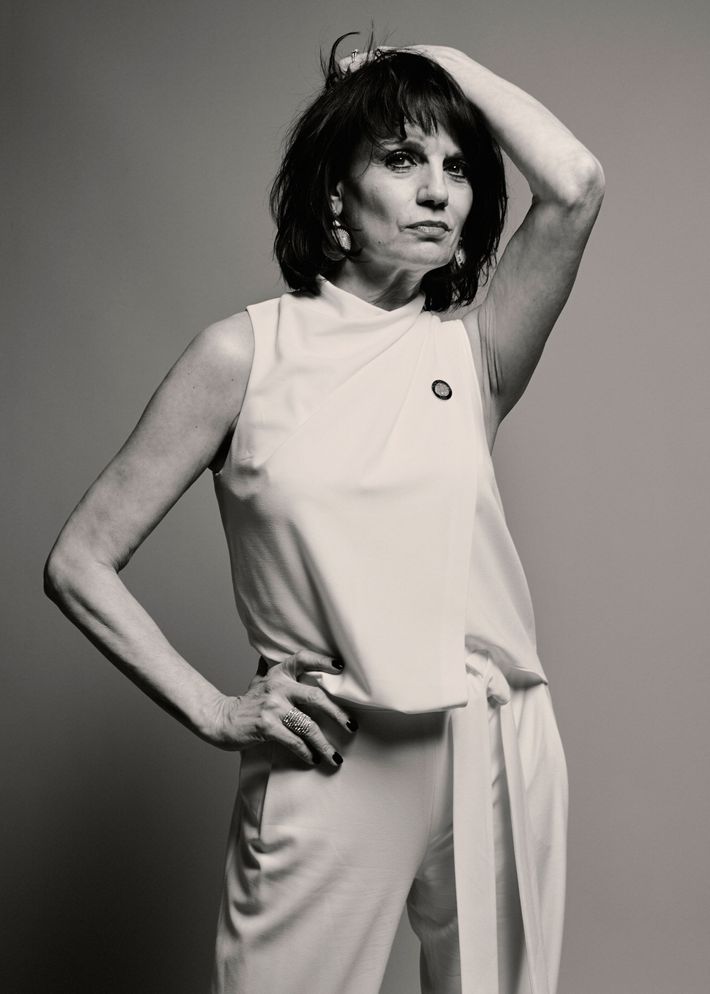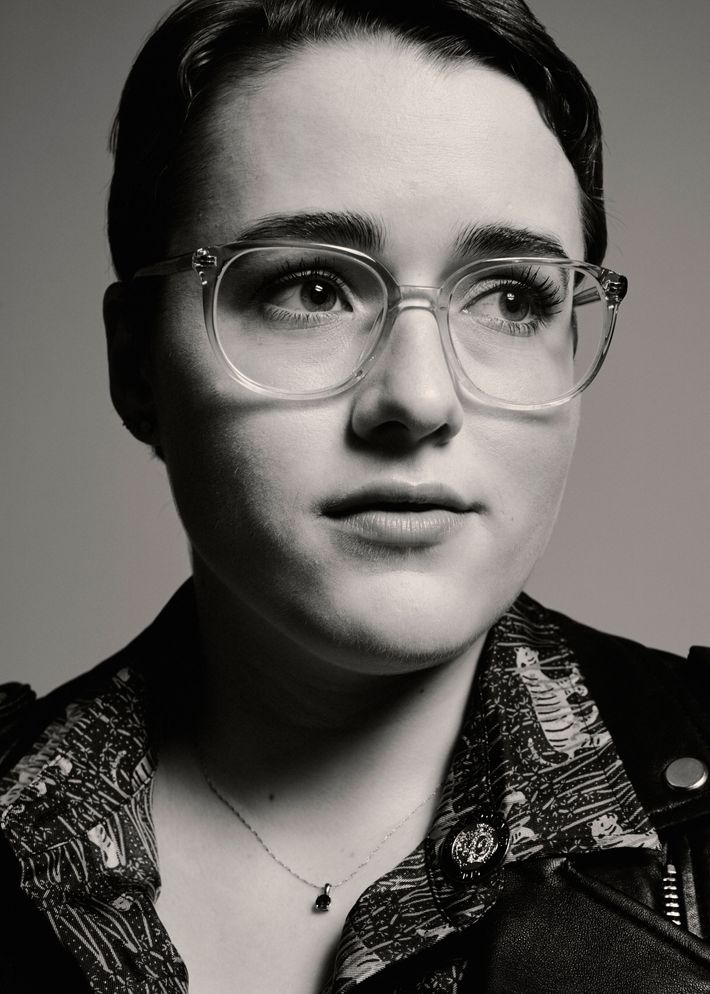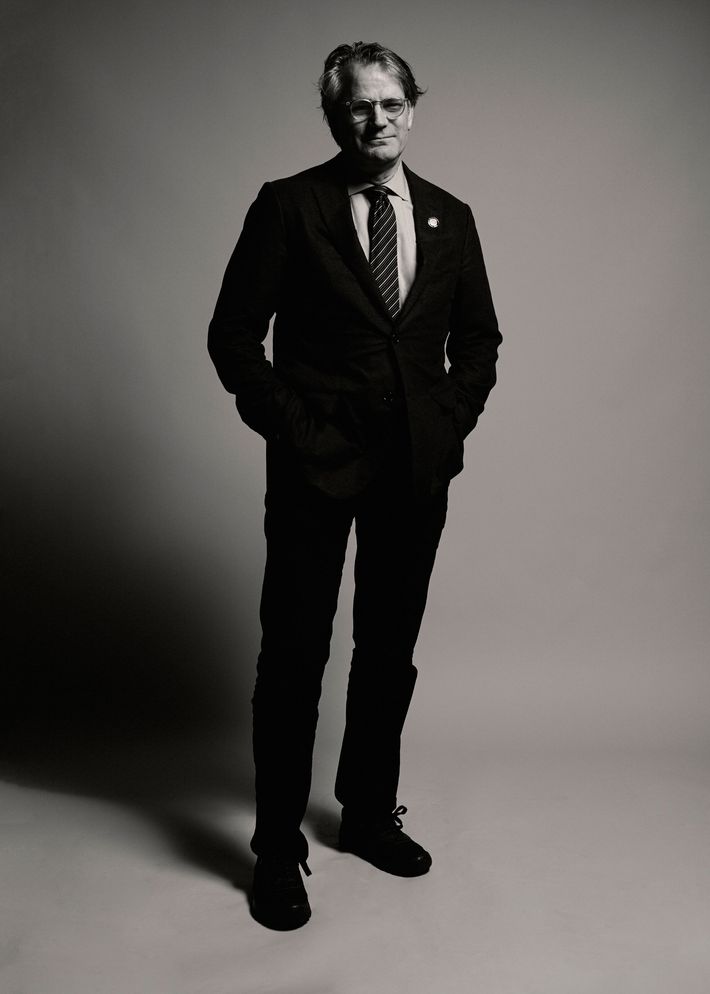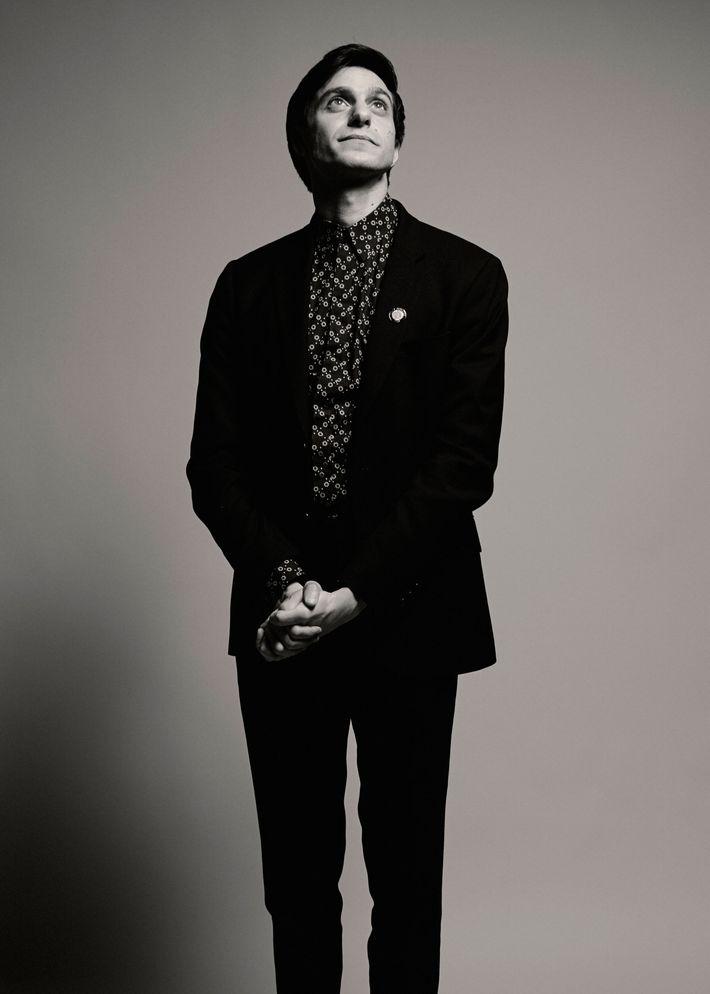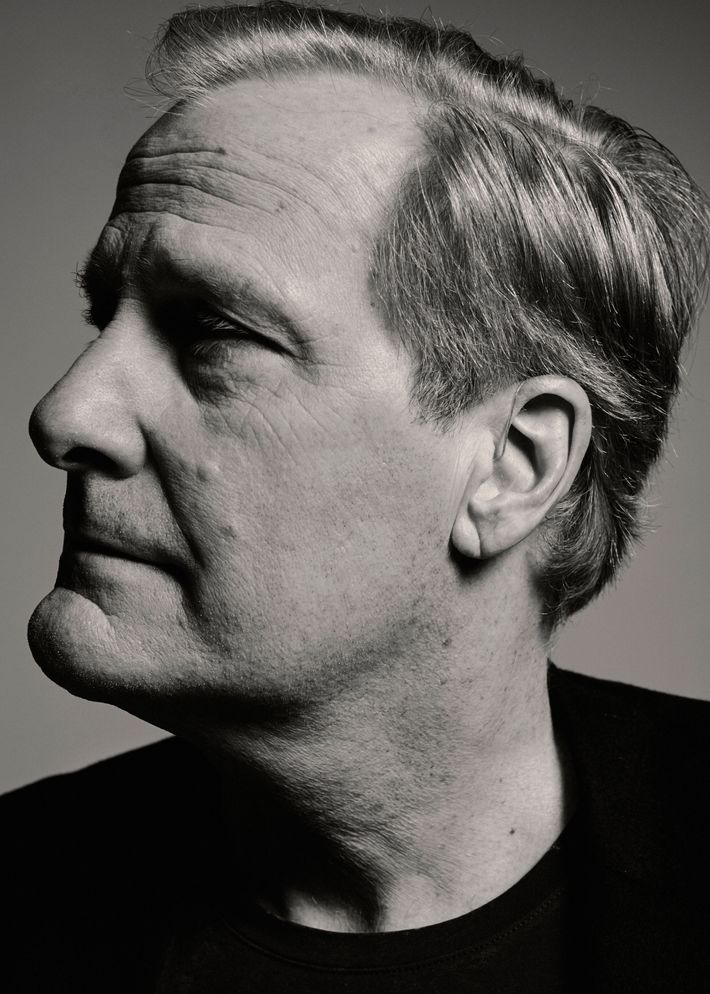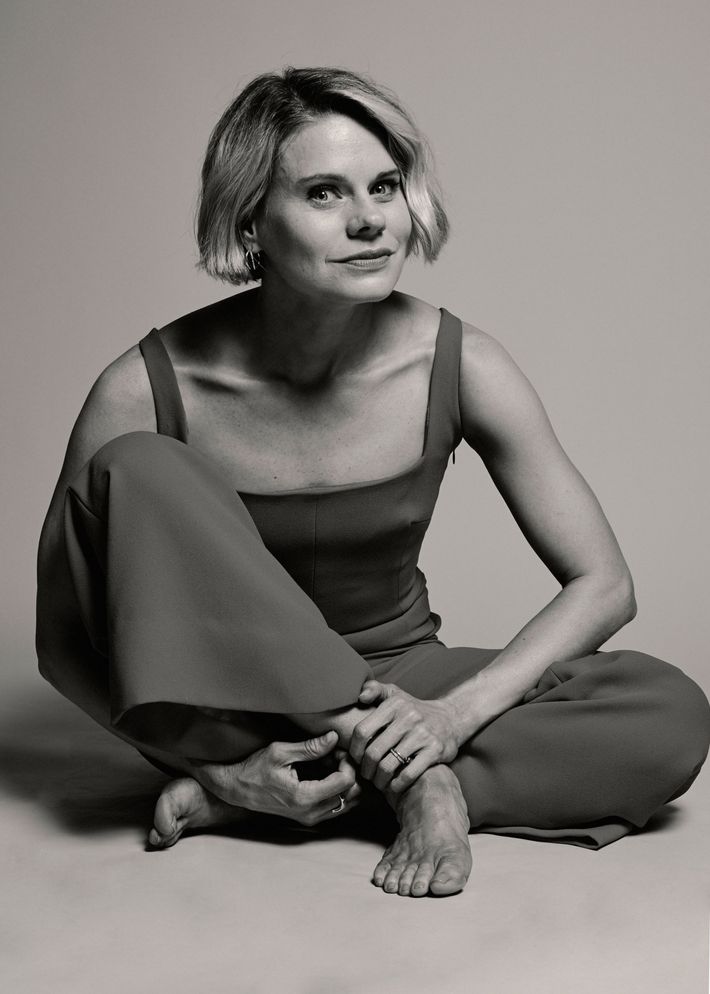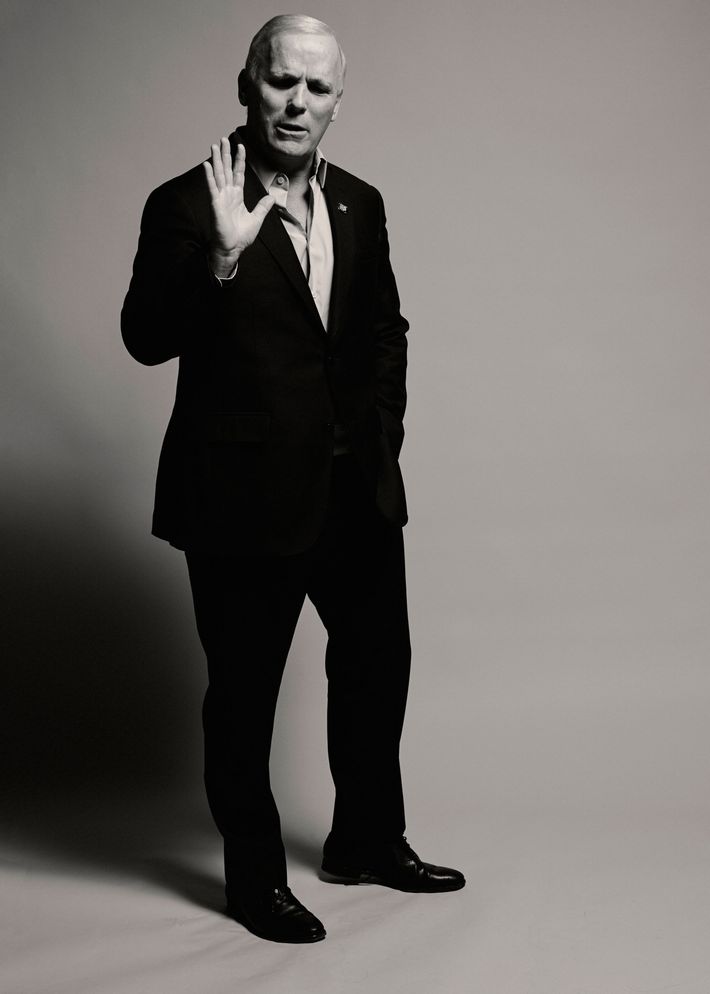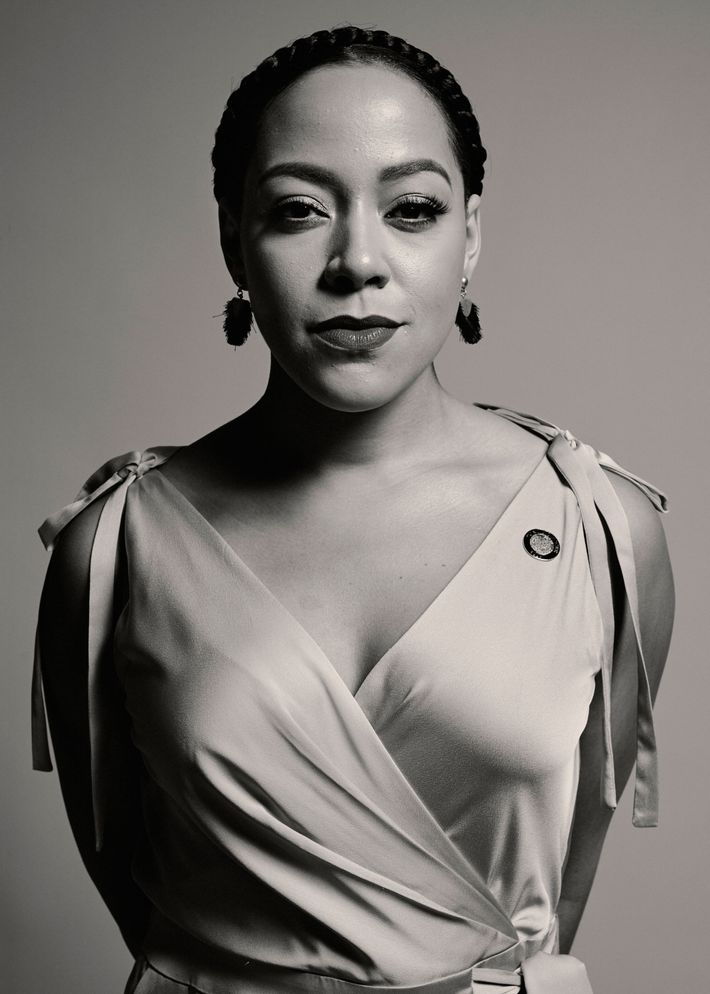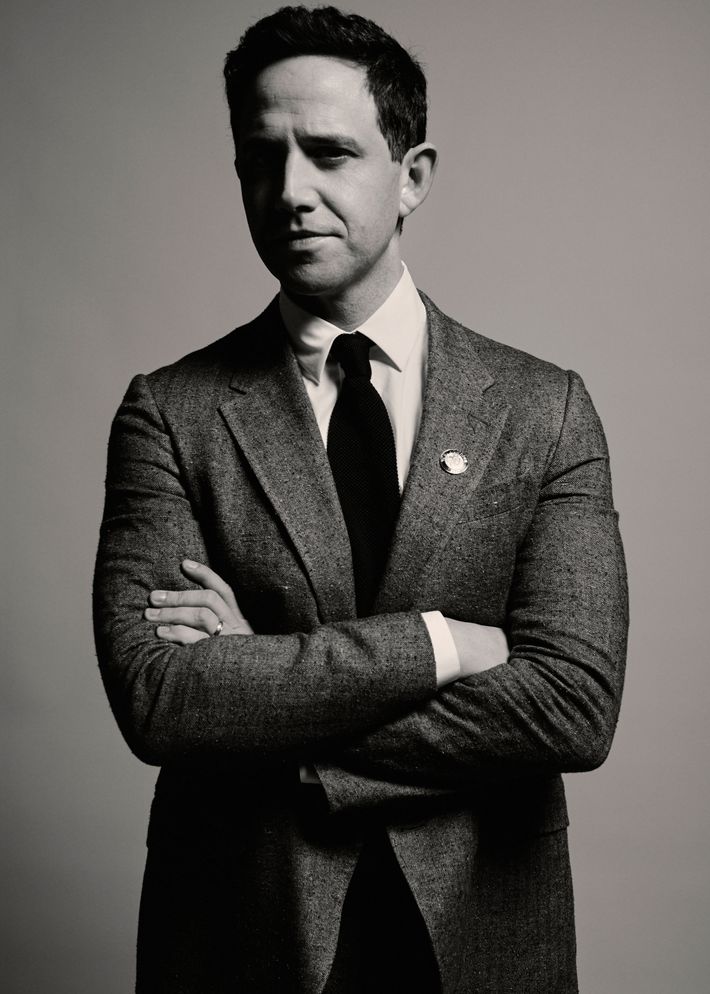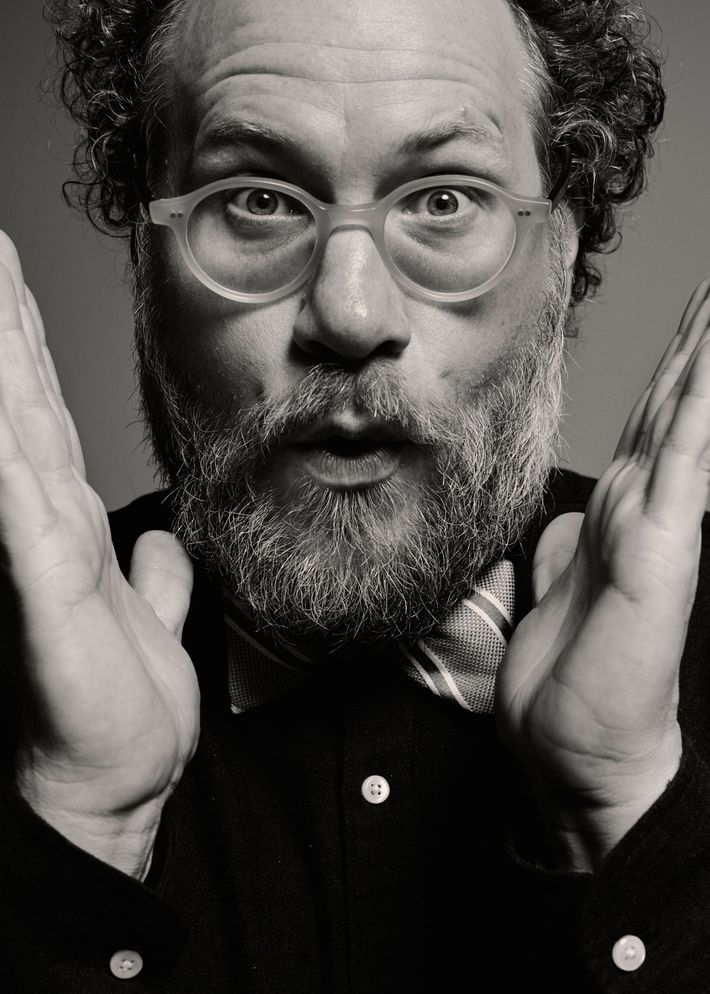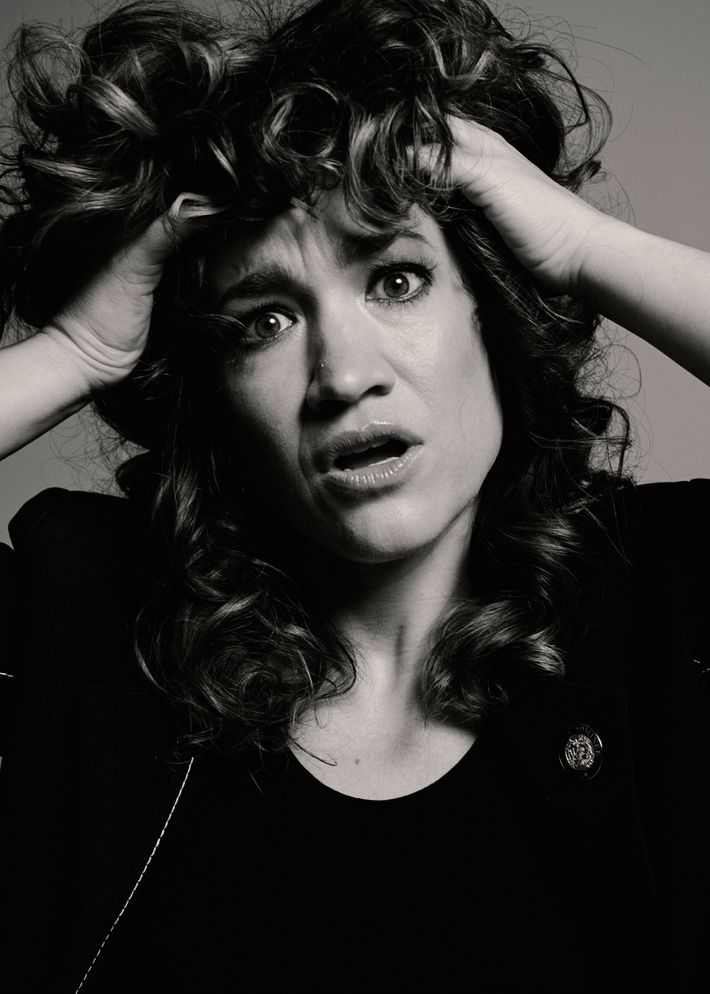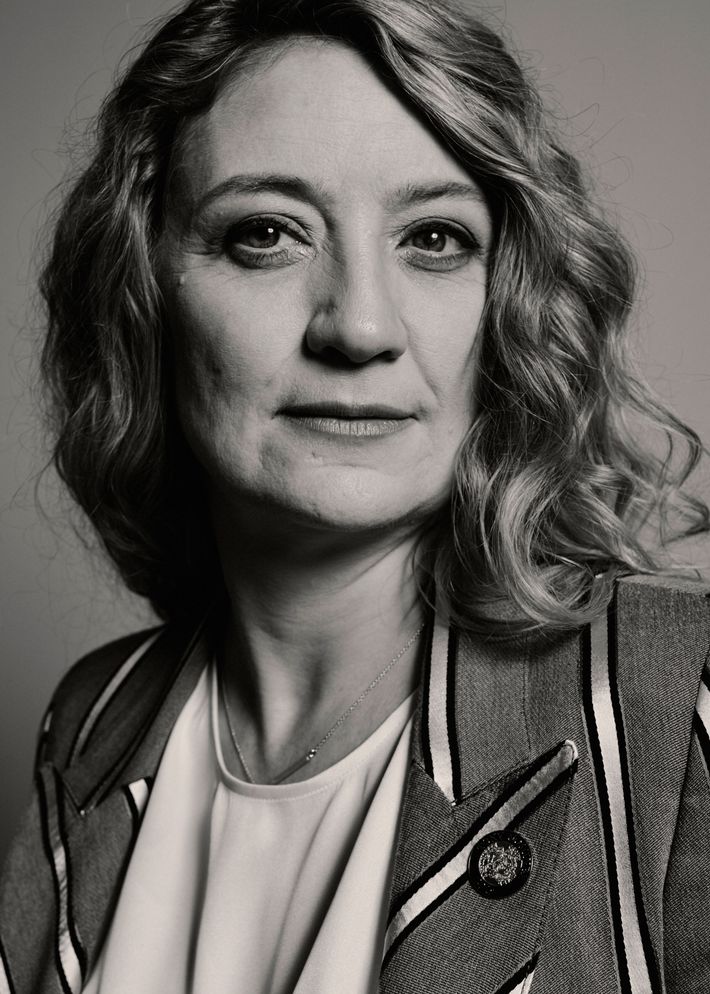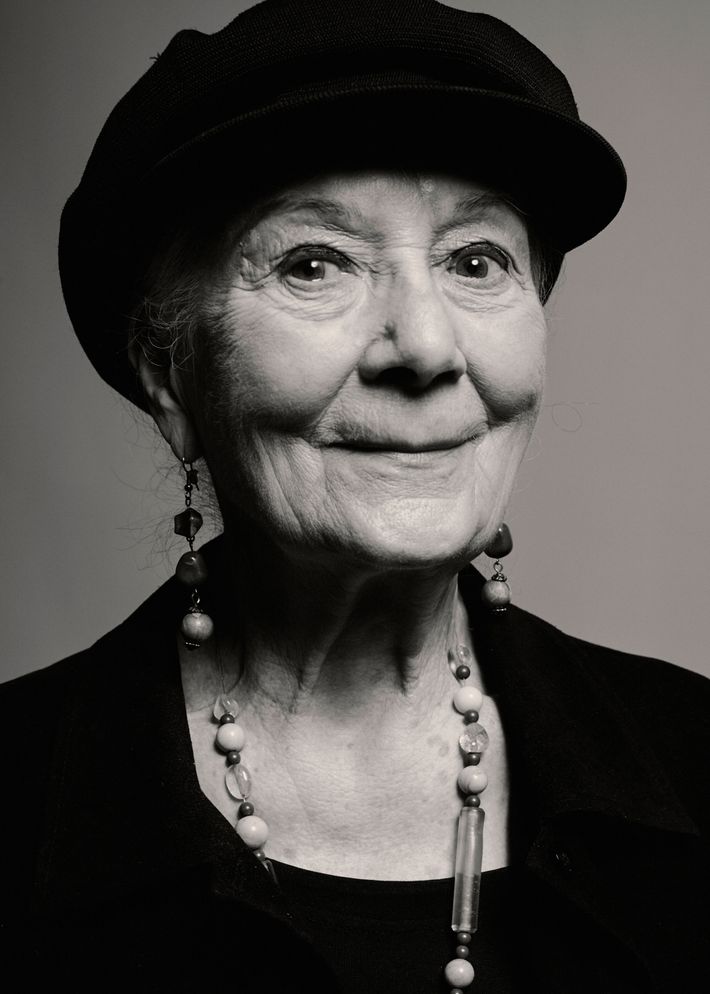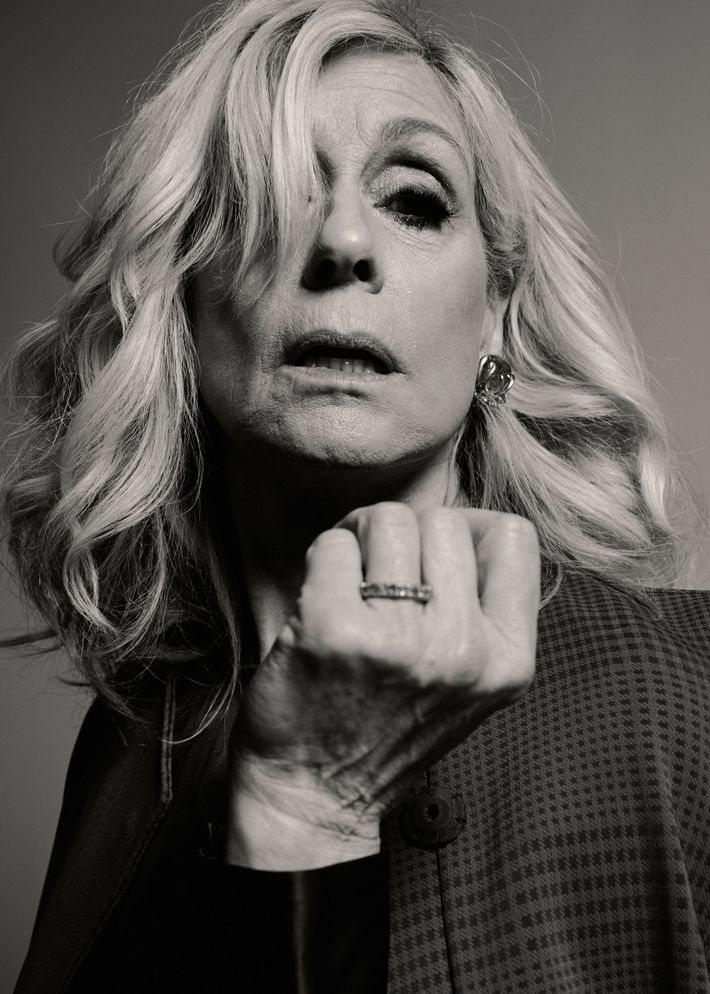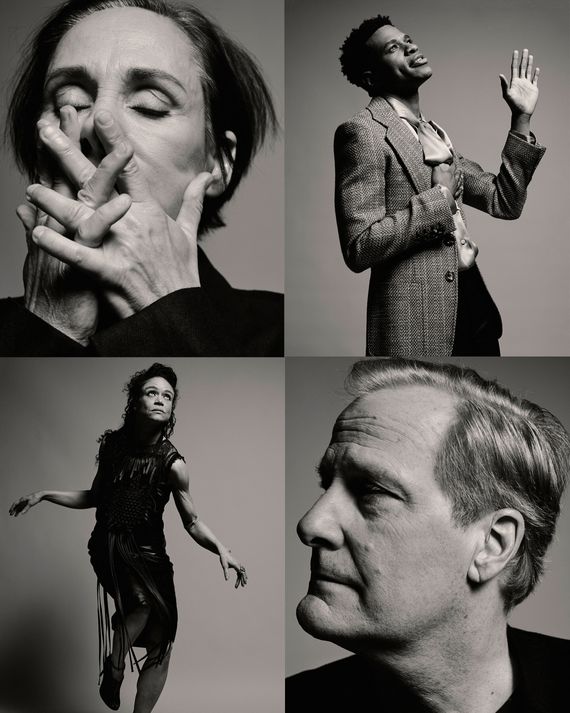
Welcome to Tony Awards season, when the stars of Broadway’s biggest shows are honored while still, in many cases, performing eight times a week. The day after the nominations came out, Vulture photographed some of the actors, directors, and writers who’d received a nod. Along the way, the nominees spoke about their shows, their collaborators, their group texts, and their reactions to being nominated, before heading off to their Wednesday matinees.
‘Ain’t Too Proud’
You’ve been in Ain’t Too Proud for several years before Broadway. How has your approach to playing David Ruffin changed?
Every day, every time we get to do the show, I understand a little bit more about David and a little bit more about myself. So it’s been therapy in this way, my own personal therapy sessions that I get to have onstage in front of 1,500 people.
You’re playing Otis Williams in something based on his book and you’ve worked with him on the character. What have you learned from him?
I’ve been with him for two and a half years and had several conversations with him and hung out with him a lot, just to get more of a feel of who he is as a man and an artist, and that also helped evolve how I portrayed him. What I really love about him is it’s so eerie how similar we are. He would say something and it would scare me a little bit because that was something I’d actually say.
What was it like to be nominated for two shows at once?
A lot of tears, a lot of shouting to the point where I didn’t know if I’d be able to do Ain’t Too Proud that night because I’d lost my voice. But we pulled through, my mom was there, I had a bunch of friends over, it was really cool. I feel like it was a big season, I had two shows I was rooting for, two teams that weren’t competing against each other, so I was like, “Everyone wins!”
What did it take to go from Choir Boy into Ain’t Too Proud so quickly?
I was in rehearsals for one show, Ain’t Too Proud, during the day and night shows for Choir Boy, but both casts, they held me down. They had my back, everyone was checking in, but we made it out alive. Both pieces feel like ensemble pieces. Yesterday [when the nominations came out] we had two group threads going on, blowing up. It was just so cool to watch.
This musical is made up of so many transitions between scenes and songs and dancing.
It’s all about entrances and exits, because the Temptations are an institution, so it’s all about something that survives all the different members. We wanted to create a sense of things floating on and off, because it’s a memory play. The treadmill and the two turntables onstage I actually gave to book writer Dominique Morisseau before she started writing, and she’s such a gracious person that she embraced that, as opposed to telling me to go away. It is inherently a part of the play.
‘Beetlejuice’
They changed a lot of Beetlejuice between its run in Washington, D.C. last fall to Broadway. How has your character changed?
The character in D.C. was this capital-D degenerate, conniving, mean-spirited. He was this guy that had this dastardly plan. Now we start this show by introducing you to this demon who is lonely and nobody’s seen him for millions of years and all he wants to do is have a friend. I think that is so sweet, and the fact that I’m just dressed up as something so disgusting takes care of that. He’s like a Borscht Belt comedian. He’s the guy who looks terrible, like Rodney Dangerfield, who never looked good in a suit but he always wore one. He’s a roast comedian.
From what I understand, the show is inspired both by the movie and the animated show where Lydia and Beetlejuice are more like friends.
The movie is the movie, but it — I think brilliantly — lacks story after a certain point, because it really just is Tim Burton’s aesthetic. But the cartoon tells this really different story of these two palling it up. If those are the two signs of the Cross, then the Beetlejuice musical is the third sign of the Cross. The literal Holy Spirit.
‘Be More Chill’
What was your reaction to your nomination?
When I saw I was nominated, I felt a sense of immense pride in the work that my entire Be More Chill family has done over the course of the past six years. The real prize is that we’re doing our weirdo little homegrown musical on Broadway, and the Tony nomination is a much-appreciated Maraschino on top.
‘The Boys in the Band’
It must be weird to be nominated so long after you finished the run of this play.
It’s a bizarre thing, and we’re making a movie in the summer, so we’re going back to it. It’s such a reminder of the importance of community, it’s such a community embrace today. It’s also a community of the eight guys I was onstage with, and the love and camaraderie that we have.
Have you gotten to talk to the rest of your co-stars?
Yeah, we have a group thread. It ranges from celebratory for one another to random inside jokes and really good GIFs, or, like, shady shit.
Well, who is the shadiest person on the Boys in the Band group thread?
I’m so not saying that. But I know who it is!
‘Burn This’
The director Michael Mayer had wanted to stage this revival for a long time. What was it like to come onto it?
It felt like the culmination of everything I had dreamed of since I was young and then in college. Getting to do this amazing masterpiece of a play that Lanford Wilson wrote, with all these incredible, remarkably talented people, and finally getting to play a queer character, is just very important to me. It’s very liberating for me to be playing a queer character, and to be playing one that’s so fearless and unapologetically himself. On the surface, he’s a funny guy, but it’s really just an armor for the soft vulnerability that exists underneath, and I can very much relate to that.
‘The Cher Show’
In this show, you have an incredible number of costume changes. Is there one that’s the hardest to pull off?
Cher’s Mohawk costume. She doesn’t put on one sensible pencil dress. I’ve got arm guards, the Mohawk, a change of wig, a halter top, pants, this bedazzled loincloth, and a drape. All of that needs to come off in some 20 seconds. Bob Mackie’s costumes aren’t Velcro and zip, they’re made of lace and nude sheer and beads and so you have to be gentle. That change, I have about nine people working on it at the same time. I’ve been late, but luckily I’ve never missed it, and then I go into the Academy Awards speech. That’s the one that I cross my fingers and trust the team around me.
‘The Ferryman’
You were last nominated for a Tony in 1974 for the play Ulysses in Nighttown. How different is the awards process now?
It’s huge now. Look at the crowds, all these interviews going on. It was much smaller then, but nonetheless exciting, thrilling, because this after all is the center of the world of theater. To be nominated is astonishing, to play here is amazing.
What was it like to join the rest of the cast of The Ferryman when the play moved to New York from London?
It was terrifying, because they’d all been doing it off and on for about two years, and so here I came, the new girl. First of all, it’s a huge role to learn, plus I had to sing four songs, which is the most terrifying thing in the world for me. I kept saying “I’m not a singer.” I had bronchitis for a whole month and I sounded like a box of frogs, but I went on singing the songs. It was in character.
The Ferryman now has a new cast in New York led by Brian d’Arcy James. Have you seen them perform?
It’s always strange at first, it’s like coming home and finding someone else impersonating your partner, but that didn’t last very long. They did such an amazing job, the show delivered beyond my wildest expectations. I think we’re lucky that we have some absolute heavyweights out there. This is not a replacement cast, this is no B team. At some point, I won’t be here anymore to oversee any productions, and if this is still going on in a few years’ time, the idea that it is performable like that without any of my input is somewhat comforting.
Your partner, Jez Butterworth, wrote the play out of your own family’s history. What was it like to play that?
It’s largely my mother’s experience of the world. It’s incredible to be able to get up onstage every night and feel so at home on it. The whole world, everything down to the Tupperware on the shelves in the kitchen, is very reminiscent of my childhood. I think that on an emotional level, it gives it a certain depth that I haven’t experienced in anything I’ve done previously. The whole time I’m aware that I’m telling somebody’s real story. It did allow me to stay in it very intensely every night without ever having that feeling of, Oh, you know, there’s this again.
‘Gary: A Sequel to Titus Andronicus’
You came onto Gary late in the process after Andrea Martin dropped out over an injury and Kristine Nielsen, who was originally in your role, replaced her.
I had so little time, but somehow it was like, I’m either gonna do it or I’m not, so just be courageous. I got such support from Nathan Lane. Nathan saw what I was doing and got what I was doing, because I just had to make some choices and go for it, and they were big, but he was laughing from the get-go. I was like, If Nathan Lane thinks it’s funny, I’m going in the right direction.
The day I saw it, you made him crack in one scene.
We’re trying to hold it together and be together, but if you’re tired at all, or if I come up with something in the moment, I’ve gotten him to laugh a time or two. Which is terrible, but then the play will switch on a dime. He’s also made me cry.
How do you clean off all the fake blood that gets on you onstage?
It actually comes off pretty easily with shaving cream and water.
You had to step into this role after Andrea Martin broke her ribs. What was that like?
You just put blinders on. You have great partners like Nathan Lane and Julie White and the great George C. Wolfe directing you, and you just trust, and that’s what happened. I love Taylor Mac, I’d done Hir, and I embrace that worldview. You can turn on the news and you’re worried about where we’re going; at least at Gary you can see you can have hope, people can make a difference, we can change something.
There’s so much going on in Gary, from piles of dead bodies to blood to dancing penises. How did you first approach staging all of Taylor Mac’s ideas?
There’s so much in there, so we had to come up with a way that was stylistic and therefore a little bit heightened so the audience could find humor in it and at the same time have enough of an edge so that it comes across as true. It’s not cartoonish, it’s heightened and it’s camp-ish and it’s burlesque, but it’s real. It was a delicate little dance that we had to do.
You also had to switch around the cast after Andrea Martin’s injury.
We did a reading of it in October, and then two or three days before we were getting ready to go into the theater, she breaks four ribs. We tried to make it work, but then her pain was so absolute. It was brutal. It was emotionally brutal for the actors because they had no time, but they had to exist inside the time and be smart and brilliant and incredible while the pressure is on. But they rose to the occasion, and they’re brilliant.
‘Hadestown’
Many of the songs have grown and changed or gotten new bridges since the show was at New York Theatre Workshop. How did you approach changing the music?
I’m used to writing a three-and-a half-minute song that has three verses and a chorus and maybe a bridge, and it seemed like the actual architecture of a dramatic song was different than a radio song, and that was a long learning curve. “Wedding Song” I’ve been living with for years and years, and when I hit upon the idea that Orpheus could introduce his “la la la” “Epic” theme [a repeated refrain in the musical] in the middle of that song, I just felt like, Oh, now there’s been an event. He really has shown his magic.
Rachel Chavkin and Anaïs Mitchell have talked about spending a lot of time changing the relationship between your character, Eurydice, and Reeve Carney’s Orpheus. What’s different this time around?
Orpheus’s character has changed tremendously, and I couldn’t put it into profound enough words working with Reeve Carney. The fact that he’s been able to switch his character to almost the complete opposite of what he was doing in London has allowed me to open up doors for my character, so really what I’m saying is that I would not be here without him.
Then it’s too bad he wasn’t nominated.
It fucking is. Pardon my French, but it is one of the most upsetting things of the year besides climate change. It pissed me off that he wasn’t nominated. I’m using every step I take of this — I hate the word “campaign,” but it’s what they use now — dedicated to the people in my circle, and that includes him.
In the staging of the song “Wait for Me,” there are these big swinging lamps that are so distinctive and popular online. I’ve worried about them colliding into each other.
When we were at the National Theatre in London, we had the lamps in the room, which helped us, but the main thing that we’ve learned is that it’s just gonna take several hours when we get to tech. It’s a lot of physics, and definitely a number of people have gotten hit in the head. It’s extraordinary watching an American audience receive “Wait for Me,” which was a huge showstopper in London, but which is at a different caliber at the Walter Kerr on Broadway. I think finally the set and the whole show look the way we wanted them to look in our dreams. Anaïs Mitchell said to me, “I feel like the lamps finally look the way you first described them to me.”
You get a great big Act Two number as Persephone with the solo “Our Lady of the Underground.” What is it like to perform?
That song is so fun to sing and has gotten more and more exaggerated over time. I get into the gravelly part of my voice, I like to play around with certain sounds. Movement-wise, it’s like whatever brings me personal joy, whatever tickles me, is usually the stuff that works. It’s like a real clown exercise in that way, and I deeply enjoy that as a performer.
Playing Hades, you have to hit these incredibly low notes when you sing. What’s the lowest note?
It’s a G below the staff, the lowest G on the keyboard.
You’ve played this role for several years as the musical has developed. How has your approach to the character changed?
I’ve focused as much as I can more and more on the fact that everything I do is driven by my love for Persephone, so even when I do things that may look from the outside to be dark or wrong, they’re done either to impress her or to get her attention. What makes it all possible is to have such a brilliant acting partner in Amber Gray. I’d never had to do the show without her, so I think my performance would probably fall apart. It’s not that I know what she will do, it’s that I don’t know what she will do, and the fact that I don’t keeps me alert and alive, and hopefully the same is true when it goes back across the way to her.
‘Hillary and Clinton’
I know you’ve talked about the playwright Lucas Hnath being very active in working with the actors in workshops. Tell me about the process for this play.
Lucas is super-collaborative and loves working with the actors. He’s so open to all the input. When you’re doing a — I’ll call this a premiere, because even though he wrote it ten years ago, he took it apart and rewrote it and now this’ll be the published version — with the territory comes rewrites during previews. Whole ideas have come in and also been cut. My character used to turn to John Lithgow [playing Bill Clinton] at one point and say, “What if things had been switched around? What if, instead of me supporting you all those years, it’d been the other way around?” and it’s since been cut, but then it’s been replaced by this whole other speech. You get attached to stuff and then it’s gone.
‘Ink’
You’re playing Rupert Murdoch in this story from British history about him and Larry Lamb at The Sun in the early years of his empire. What has it been like to take it to an American audience on Broadway?
It’s set in Britain, but what the play is doing is using the lens of the past to throw light on our present moment. I did think to myself, when I first agreed to come here and do it, I wonder if it’s going to have the same resonance another year, and it actually only speaks more loudly. There are some cultural references that maybe resonate less and others more loudly. The line when in the final scene I say, “I’m thinking of buying a TV network” over here brings the house down.
‘King Lear’
You’re playing both Cordelia and the Fool in this production. Do you see a connection between the characters?
I approach them as completely distinct. We did have a discussion about whether it was actually Cordelia dressing up as the Fool, but it didn’t seem to make sense in the material and I thought it was not so interesting, in a way. I naturally started finding two very different, distinct roles, but in the language they’re connected; there’s mentions that Lear keeps making that connect Cordelia and the Fool. They’re both the truth speakers of the piece. One is a woman, and King Lear doesn’t listen to the women, and one is a boy she listens to. It’s really exciting to be able to play the elegance and femininity of Cordelia against the masculinity and naughtiness of the Fool. The Fool’s a bit of a sprite, and he doesn’t have a beginning or an end, and Cordelia has only a beginning and an end, so together they create a journey.
‘Kiss Me, Kate’
What is it like to perform the slapstick comedy in this show?
The comedy is the most fun part, being able to bring joy, make people laugh, be really silly. I don’t get to do that very often. Will [Chase] is extremely funny, we’re laughing constantly. It’s a very physical show, but we have to be very careful, so it’s a constant bit of “Oh, I just busted my hand” or, “I’ve just hit you too hard,” so we really have to trust each other. It’s a lighthearted situation.
‘Oklahoma!’
You started on Oklahoma! at Bard in 2007. How has your approach to it changed over the years?
When we started working on it, W. was president and we thought, Okay, can’t get any worse. We were wrong. When we did it the second time, Obama was president and they’d just affirmed marriage equality. When we did it at St. Ann’s, Trump was president and Kavanaugh’s hearings were going on. And now we’re at Circle in the Square. The world’s changed and the show’s gotten deeper and more personal and more confident.
I was impressed that you kept serving chili at intermission, even on Broadway.
Fortunately, it’s not difficult for me to coordinate, because I get to say, “We need the chili,” and then a lot of people run around and figure out how to make it happen. But it’s always been an important part of the show, just the idea of, Is there something in common about people sitting down for a meal together and people going to the theater together?
What was your reaction to hearing about your nomination?
I felt like I was 11 again and somebody was like, “You are nominated for a trophy.” It made me feel like a child again, and it reminded me of the joy of just being acknowledged for your work. That’s unique for me. I’ve been acknowledged and looked at my entire life for my chair and for overcoming my disability. This time around, I’m being acknowledged and looked at for my abilities and my skills, and that means so much to me.
In Oklahoma! you’re performing right next to the audience, with the house lights up for a lot of the show. What’s it like to have their reactions right there?
It’s really wonderful when it’s great, and when they’re being noisy and eating and their cell phones go off, it’s not great. It’s really wonderful when they’re rapt and they’re horrified and they’re in it.
You mix batter onstage with milk and eggs and corn-bread mix at the top of the show. That’s not actually baked into something, right?
That’s thrown out. You wouldn’t want to eat that! A lot of people think that it’s the corn bread that they eat [at intermission], but it’s a hybrid mix of corn bread and flour and watered-down milk. The eggs are real, but you just wouldn’t want to eat that.
There’s a lot of darkness, metaphorical and literal, in this version of Oklahoma!, especially when you do “Pore Jud Is Daid” with Patrick Vaill with the lights out and your faces filmed up close and projected on a wall. What’s it like playing that scene?
It’s one of my favorite parts of the whole experience. There’s a simplicity to it, but it requires an extra amount of focus and stillness, which I think complements the language and the implied dynamic of the scene as written. The filming illuminates the underbelly, as it were.
‘The Prom’
You have a solo, “Barry Is Going to the Prom,” that the songwriters described to me as written as if your character were dancing with fruit on his head. How do you approach it?
Well, I certainly bring the fruit part! But it’s one of the most celebratory moments that I’ve ever had to do onstage. In the show, it’s this man who’s not gotten what he’s wanted for 50 years and finally gets it and is alone in his hotel room. It’s a nice peek into a private, celebratory, moving, regretful moment — and also fun and funny.
Ryan Murphy announced he was doing a film version of The Prom for Netflix. What will that be like?
I don’t know exactly yet, but he felt so passionate about it when he saw it, so he’s super-excited and has a total version of it. It’s going to be a film version, but I think he’s gonna stay true to it, because he loved it, but open it up. The energy will be the same.
Congrats to you and Caitlin Kinnunen — you’re both nominated in the same category for The Prom.
It’s like family. I’m thrilled for her and she’s thrilled for me. It’s awesome.
Your character, Dee Dee Allen, is a big Broadway diva. What does it take to get up to her energy level?
I don’t have a problem accessing my energy, because I like to give 150 percent. I put on that 12-pound sequined gown, I’m good to go. It’s like, Oh, here she is. The cast all meet together backstage before the curtain comes up. Downbeat, then we’re ready to go.
You’re nominated in a category with your co-star Beth Leavel and Kelli O’Hara, who played your mom in The Bridges of Madison County.
Kelli sent me a very lovely text that was just like, “Daughter, we get to do this together!” I was like, “Mom, oh my God!” It’s so cool to be doing this alongside Beth Leavel and Kelli O’Hara and these people I love and admire and have gotten to work with, and now we’re doing this together.
‘To Kill a Mockingbird’
Aaron Sorkin has talked about wanting to find something different in Atticus Finch in writing the play. As a director, what were you pushing for?
It’s 2019, so we know different things than Harper Lee knew then. She had a complicated relationship to her own father, and she’d written Go Set a Watchman before she wrote this book and then I think shifted from that. It was very important to us to avoid certain problems the book has; one is the white-savior story, and it seemed really true that he couldn’t be an apologist for his own community and had to have his own discovery and his own learning.
Mockingbird got nine nominations but didn’t get nominated for Best Play. What was your reaction to that?
Of course, we spent a long time on it, so we’re hugely disappointed and upset, but there were a lot of great plays. I loved What the Constitution Means to Me. I love Gary. I love The Ferryman. It didn’t break our way this time, and it’s hard, but we love our piece and audiences have been extraordinary. I’m really happy for the nominees that were included.
You’ve talked about thinking of your character, Dill, as the younger version of Truman Capote, who grew up with Harper Lee. How does that inform what you’re playing?
Dill, like older Truman Capote, is a self-mythologizing creature, and I was really interested in having him be somebody that didn’t belong in this community and felt like an alien and is thus being treated as such, and I think that’s what we as queer people feel, especially when you’re younger. It’s a way to ingratiate yourself.
One of the things Aaron Sorkin has talked about in writing this play was finding a new arc for Atticus Finch that’s different from the novel. How do you approach playing that?
It’s similar to the book and the movie in a general way, all the way to the trial and then the guilty verdict. After that, it turns for Atticus, he clings to his beliefs that there’s goodness in everyone, that compassion and decency and respect for other people will win the day. He’s learning that not everyone possesses those traits. That’s what Aaron did in making it relevant to today, because we’re certainly at a time when a lot of people don’t feel that those things are important.
Are there ways that you’ve developed to get yourself into playing someone Scout’s age?
We eat a lot of Sour Patch Kids backstage, Will Pullen and Gideon Glick and I, on the days where we’re like, “Do we have the juice to play the 8-year-olds?” If we don’t, then you just head to the Sour Patch Kids. Is that how Juilliard teaches actors to get into character? I don’t know!
‘Tootsie’
You directed both Kiss Me, Kate and Tootsie in quick succession. What was it like going between the two?
When Kiss Me, Kate started previews, I had one week of just Kiss Me, Kate and then Tootsie started, so I would go in the morning from ten to two, skip lunch, and do that. Then I would leave Tootsie and go to Kiss Me, Kate, I would rehearse all day, I would see the show at night, and I would go back to Tootsie, and that’s what it was for two and a half, almost three weeks. I was so happy when Kiss Me, Kate opened. I was like, Oh, thank God.
You’re playing a part that was played by Jessica Lange on film. How much do you think about the film version?
It’s different enough that I didn’t feel the pressure to try to re-create something that was created by such an icon. Those are really big shoes to fill, and I knew I could never fill them, and because we’re doing the show in such a different time than when the movie was made, we’re telling the story in our own way. I feel like I’ve had the freedom and liberty to create a role from scratch, and to work with Robert Horn, the book writer, and Scott Ellis, the director, in finding the best way to tell this story.
How much has the musical changed with feedback from audiences on Broadway?
I don’t think I’ve ever been in a process where we froze the show four days before critics started to come. There are still sections of the show where I’m like, Duh, Santino, this is where you can do that, and this is what this is about. It’s still very much alive, and we’re still fine-tuning the best performance.
You’d mentioned that the show spent a lot of time fine-tuning the ending.
What I think is right about our show, and which has changed a lot, is that Michael fails to con people when he tries to and has to fess up and is remorseful and humiliated and humbled by the insane decision he made.
You’re playing the role Bill Murray played in the movie version of Tootsie. Did you study that performance?
I had seen Tootsie before we started workshops, but I had to refresh myself. I watched it and remembered it so fondly, and then you see the Bill Murray stuff and you hear all the stories about how he was a late addition and just came in and improved his way through all the stuff. He’s Bill Murray, so what are you going to do? I’m not going to do my Bill Murray impression, no one wants to see that. Fortunately, Robert Horn, our book writer, wrote an amazing character with plenty of funny things to do and say, so it’s fun and easy.
One of your big moments is singing this very dense, very fast song. How do you prepare for that?
My boyfriend and his children who live with me were really not excited about how many times I had to sing that song to memorize those words. Now it will never leave my head, it’s running on a loop constantly. It’s a song where you can’t breathe, so I’ve had to really figure out how to do it and stay healthy. I’ve had all this PT done on my neck muscles, because they’re so overworked. My massage therapist is like, What are you doing? I have three hours of it every week. People always ask me where I breathe in the song and I say, “Oh, the applause!”
‘What the Constitution Means to Me’
What was your reaction to your double nomination?
Utter shock. The whole trajectory of the show has been thrilling and unexpected. This is not where I imagined it would end up.
Have the audience reactions changed in taking this to Broadway?
I’ve found that the Broadway audiences are even more vocal than downtown, and they want to participate. I don’t know if it’s that they know what they’re coming to now, but they’re very responsive, they shout out things during the debate.
That debate at the end of the show is about whether to keep or abolish the Constitution. I remember you saying people decide to abolish it about one in five times. Has that ratio changed?
It’s remained exactly the same. This round, we had another debate camp before we started performing and honed the abolish arguments even more, so I thought maybe it would have a better shot, but no. Young people abolish it. European people abolish it a lot.
‘The Waverly Gallery’
This play was originally performed Off Broadway in 2000. What was it like to return to it so many years later?
There’s something about the lost sense of the place, Greenwich Village, that I don’t think was quite as powerful in the original production, just because of the proximity in time to the events in the play. There was something about the frailty that Elaine May brought to the play. Eileen Heckart, who played it originally, who was also brilliant, was tougher, and it was a different dynamic. It was gratifying to see a completely new set of actors do just as beautiful work in a completely different direction.
Special Tony Award for Lifetime Achievement in the Theatre
You’re currently performing in My Fair Lady as Mrs. Higgins. How did that role come to you?
André Bishop [Lincoln Center Theater Producing Artistic Director] sent me an email. He said that Dame Diana Rigg was leaving and would I be interested in taking her place?
Was it an immediate yes?
I said I’d like to think about it, of course. Jennifer Ehle, my daughter, said the first thing I should do is see the show. I came up and saw the show and fell in love with it, but I thought there was no way that I could possibly join the cast, because it would be getting onto a moving express train, but later on I thought about it and the train very kindly stopped for me so that I could get on.
Isabelle Stevenson Tony Award
What made you start doing this work?
My friends were dying. People weren’t saying anything, then lots of people, like Elizabeth Taylor and Larry Kramer, started saying things and organizations sprang up, like Broadway Cares/Equity Fights AIDS. We were losing our community, and something had to be articulated that a community was dying and people weren’t paying attention. I don’t hold myself up as the only person that did that. I really felt that I was losing my family, I was losing my friends, I couldn’t bear that, and so I felt I had to say something.
What does it take to keep people’s focus on these issues now?
To be acknowledging the organizations that are out there that are really supporting these communities and that there is still research needed to be done, that we have to find a cure, that we have to pay attention, that this is not over. The disease is not over, and homophobia and reactions to people in the LGBTQ+ community, that kind of bigotry and divisiveness is clearly not over.

